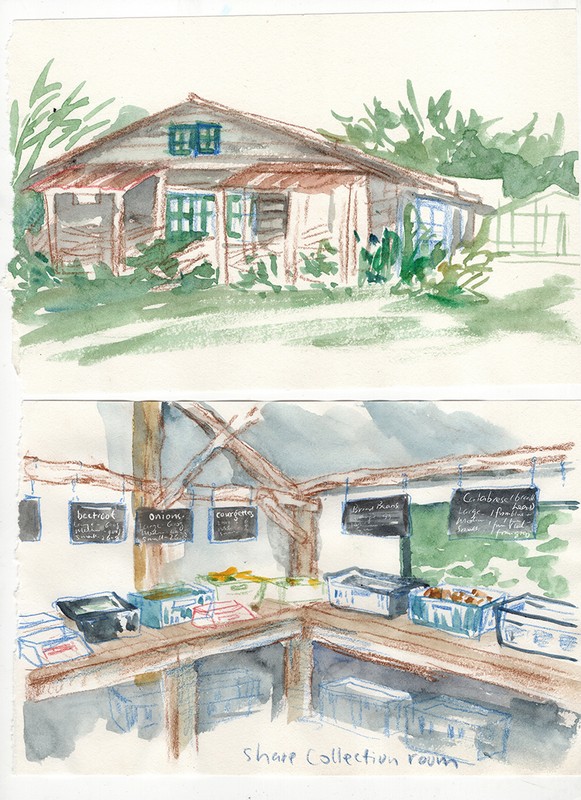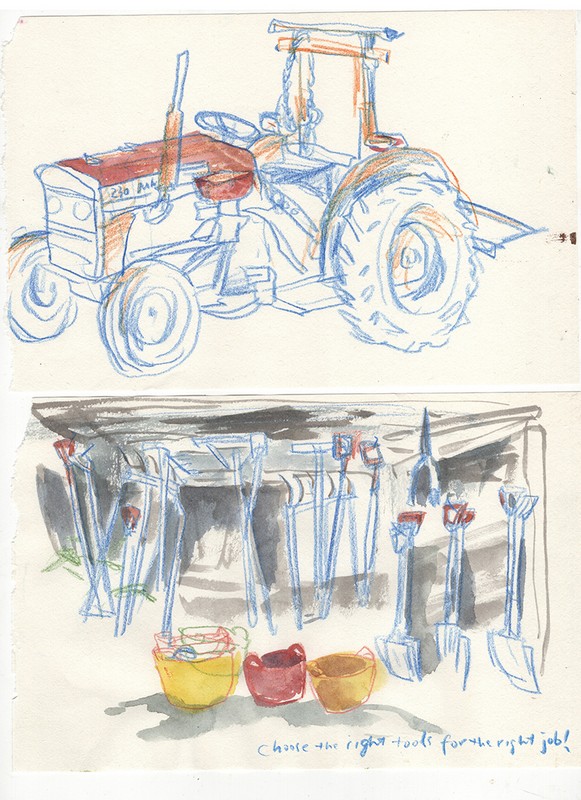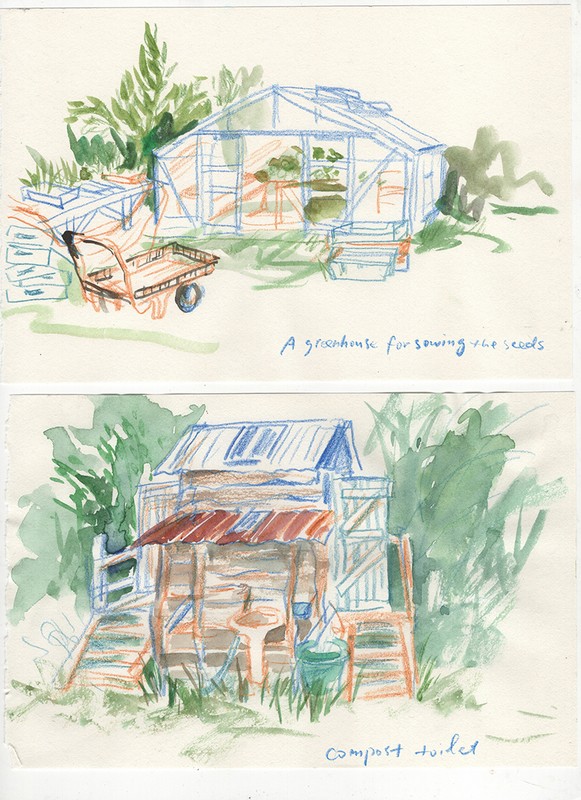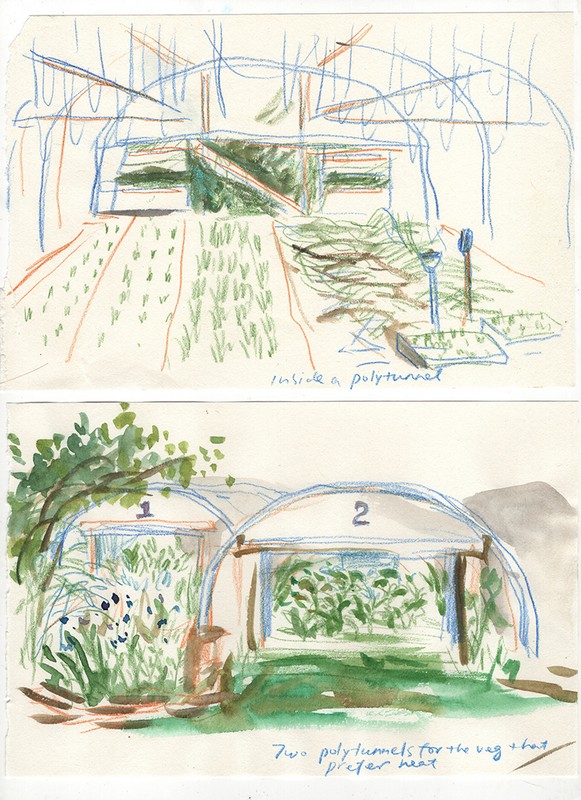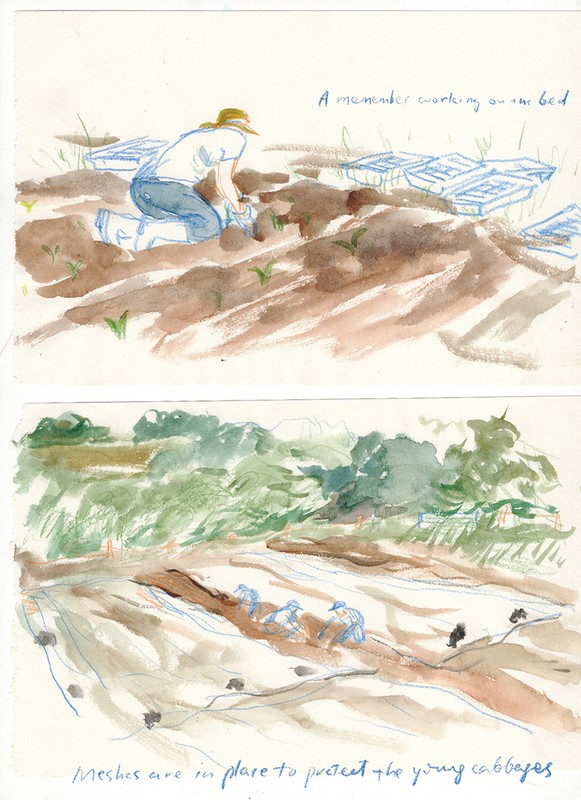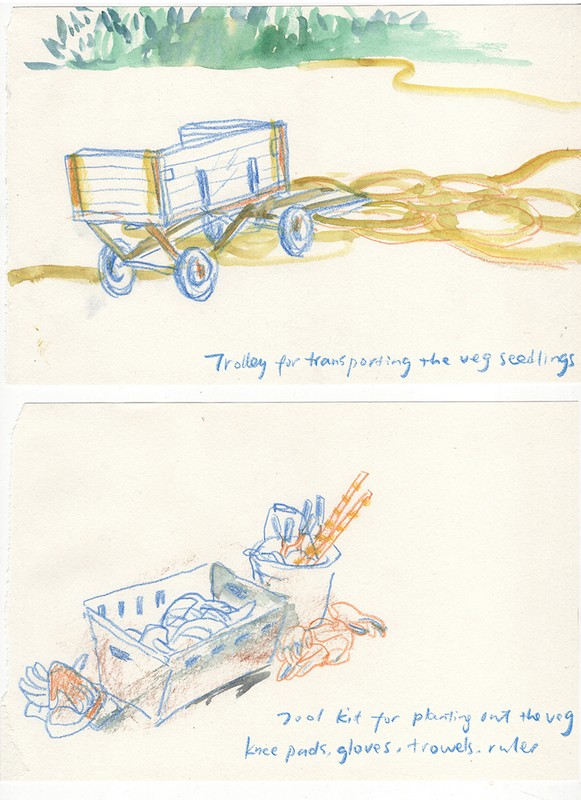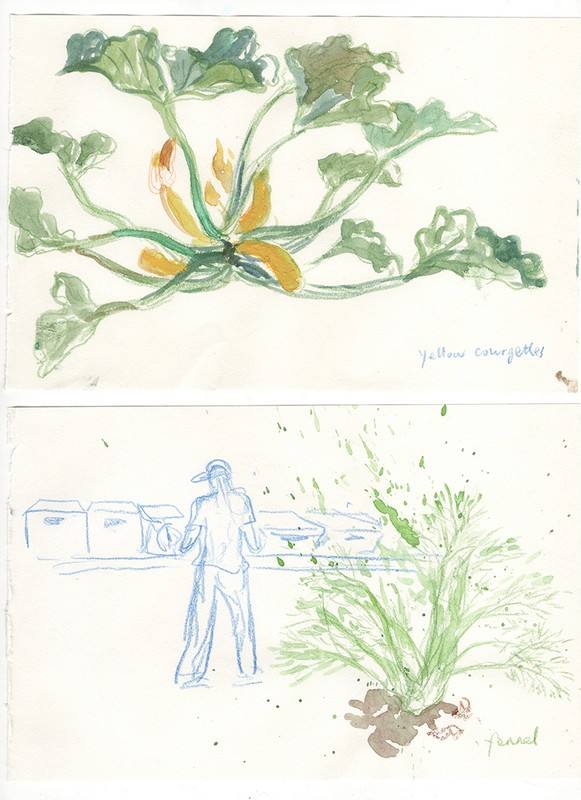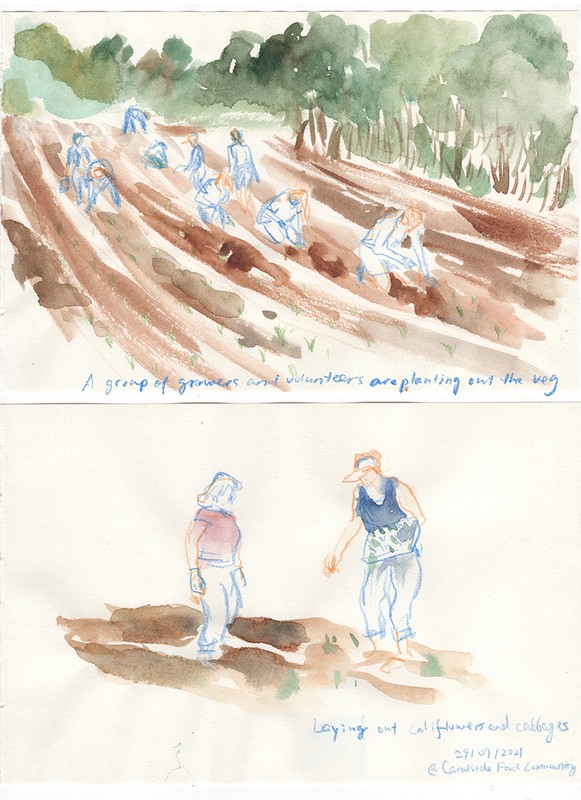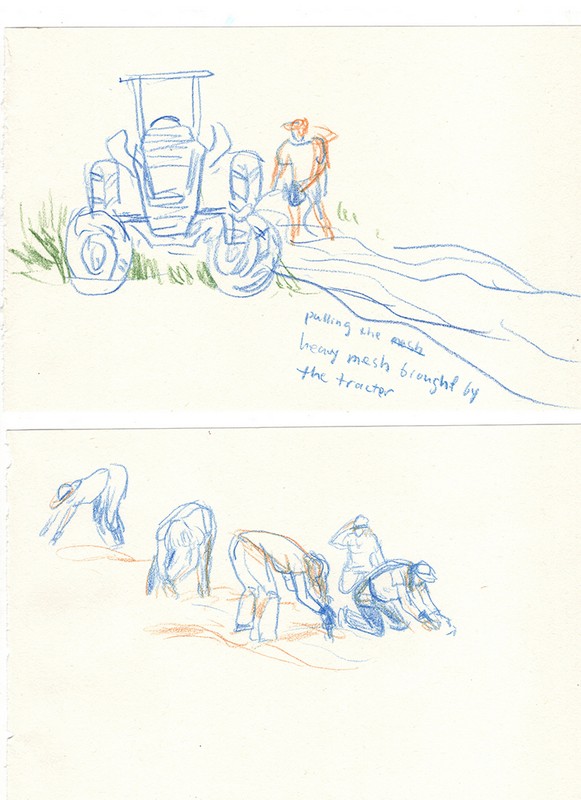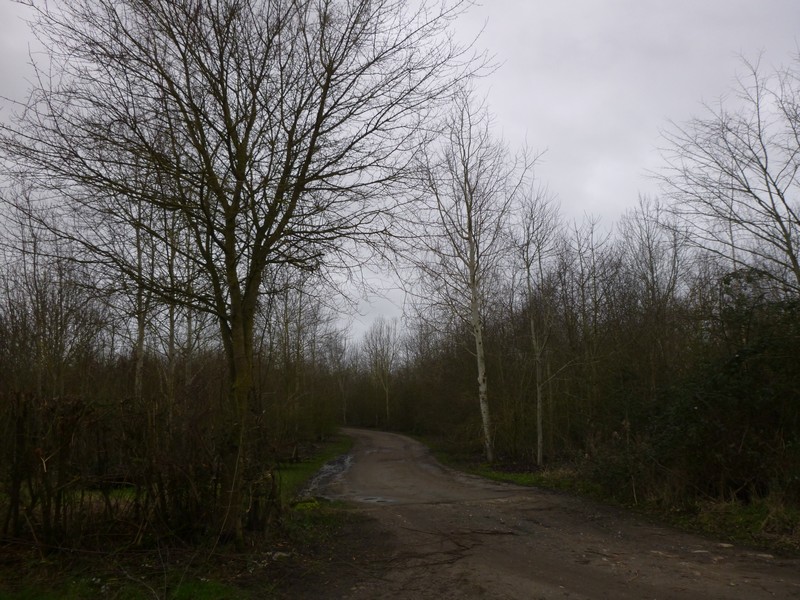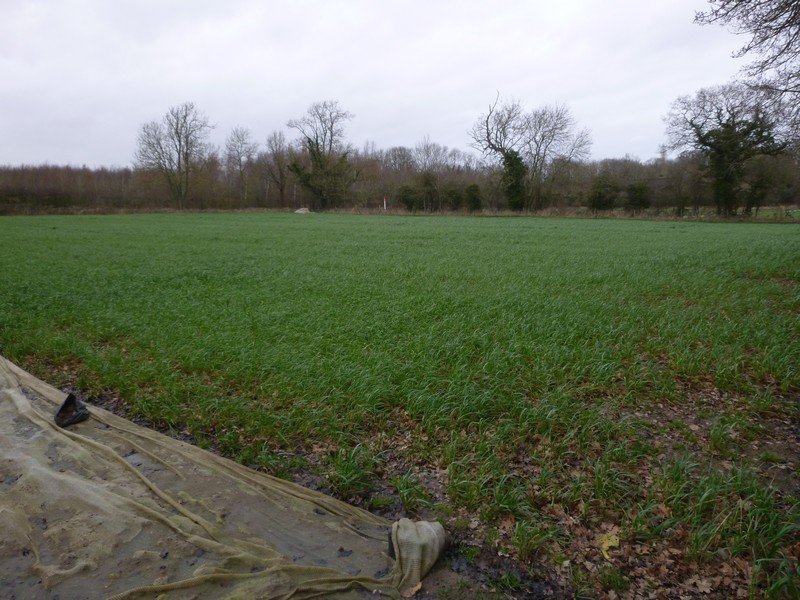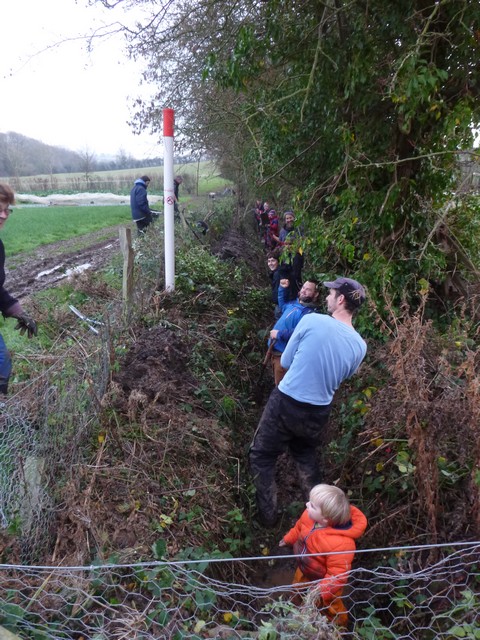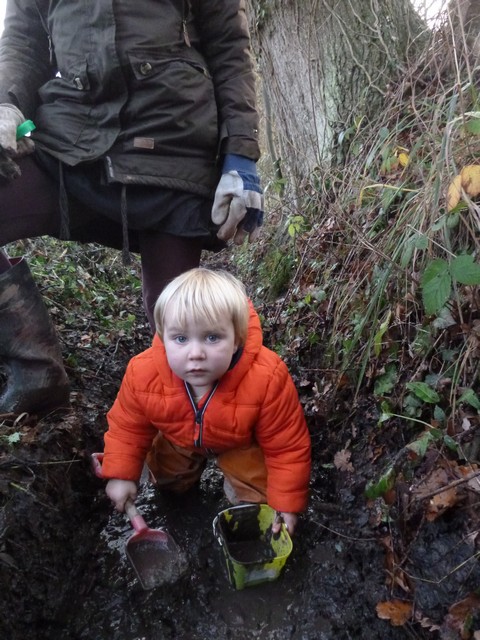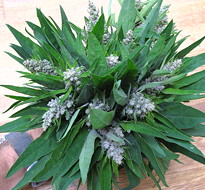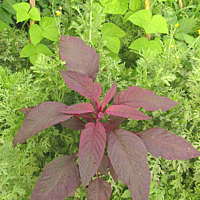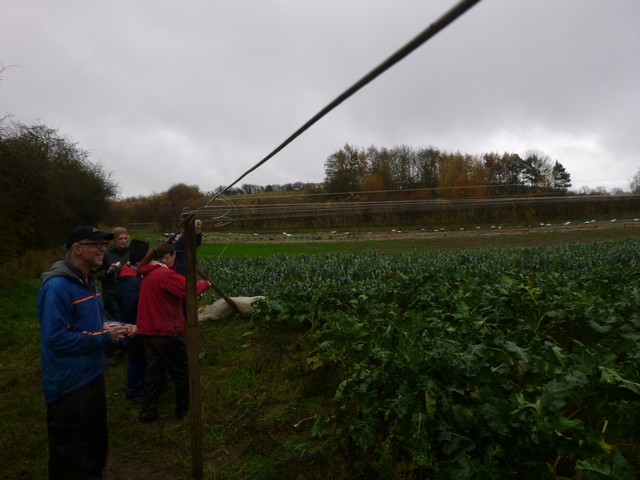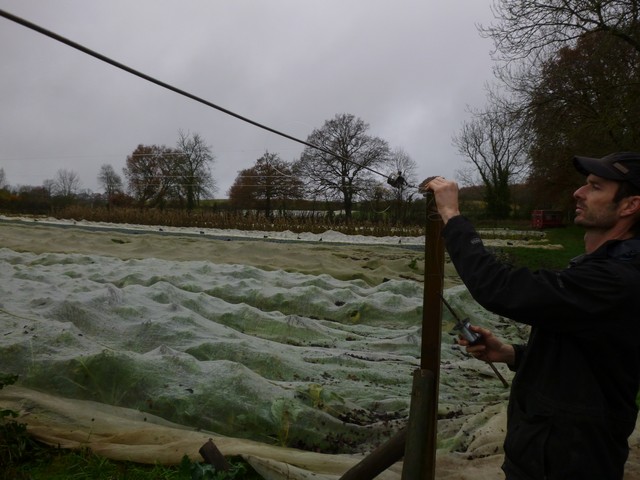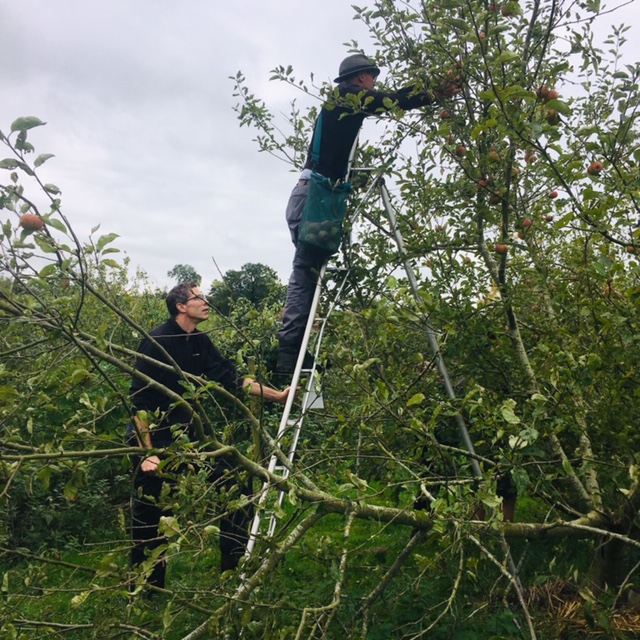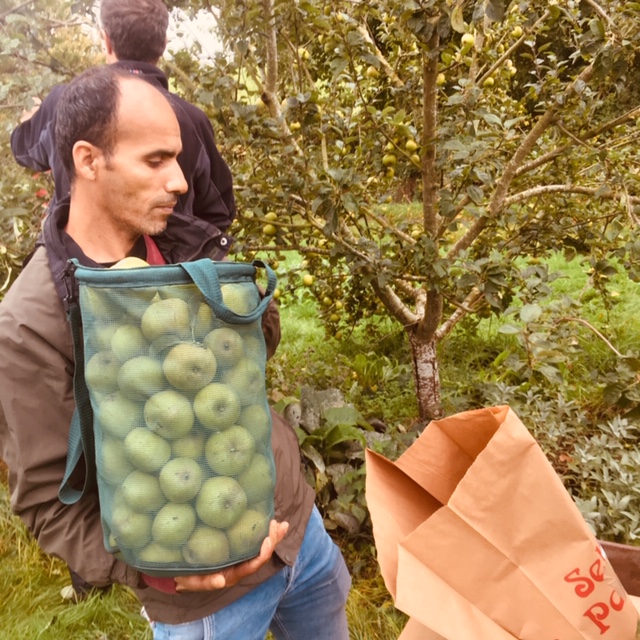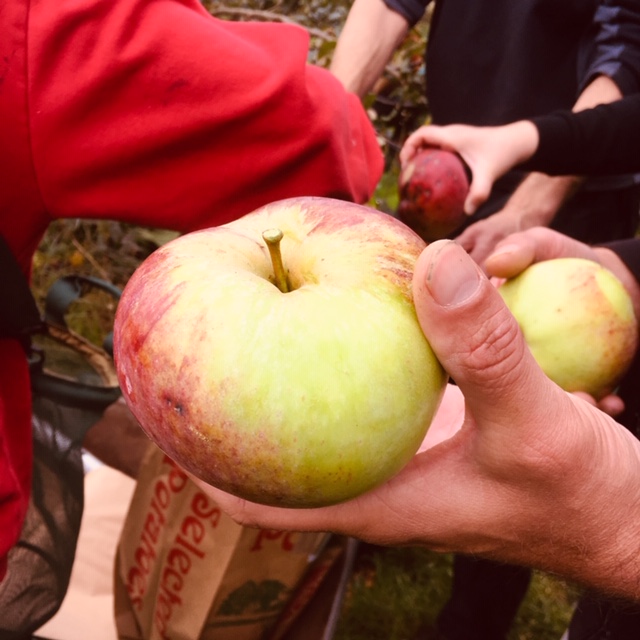2024: October news
Samhain is upon us, marking the end of the traditional harvest season and the beginning of winter. The word “Samhain” is derived from old Irish and means “summer’s end.” In the Celtic calendar the start of November is also the start of the year, beginning when everything around us is in nature is dying. The plants and trees drop their seeds and the new year is sown into the compost of the old, laying dormant until Spring.
As we now move into our Winter hours at the start of November it has also meant saying goodbye to Dan, our seasonal grower, who has been supporting our work at the farm through the busy summer season. We are very thankful for his hard work and all his contributions during his time here at Canalside and wish him well for his journey ahead.
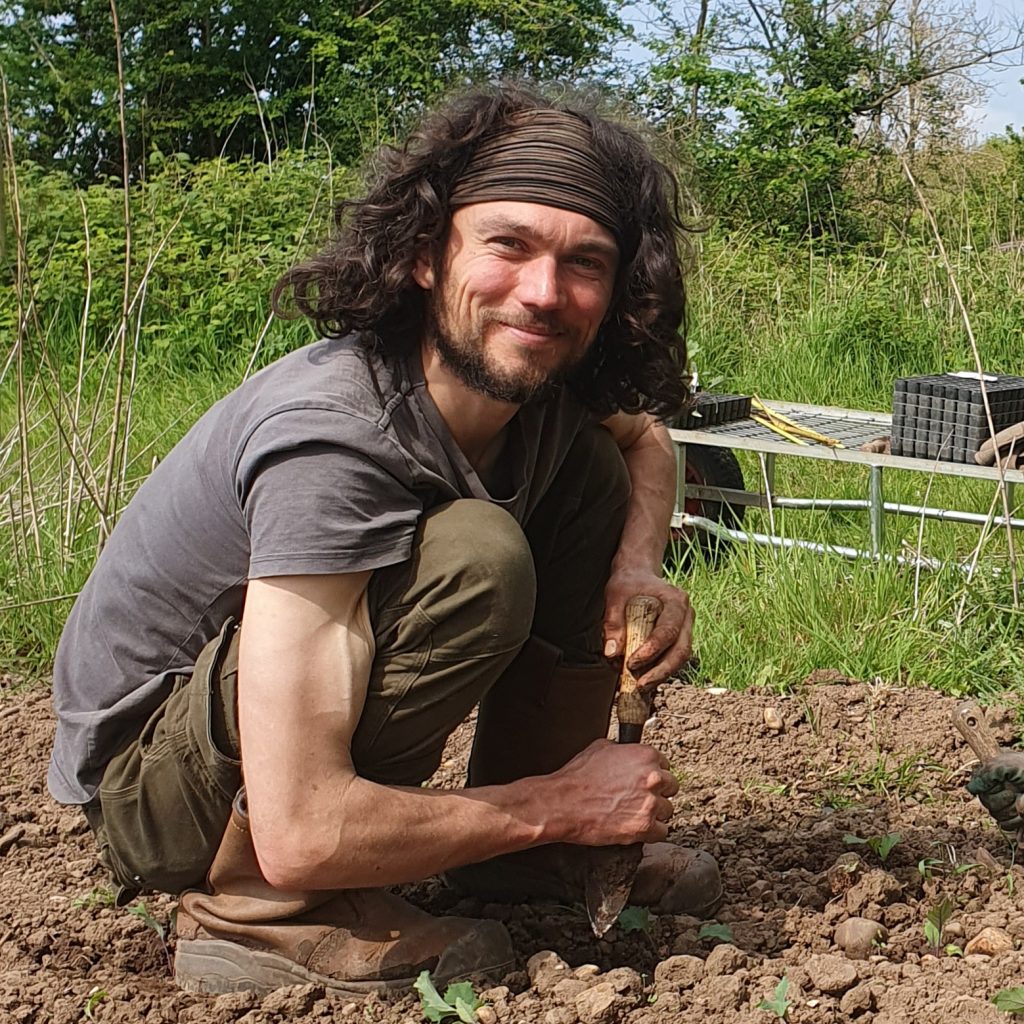
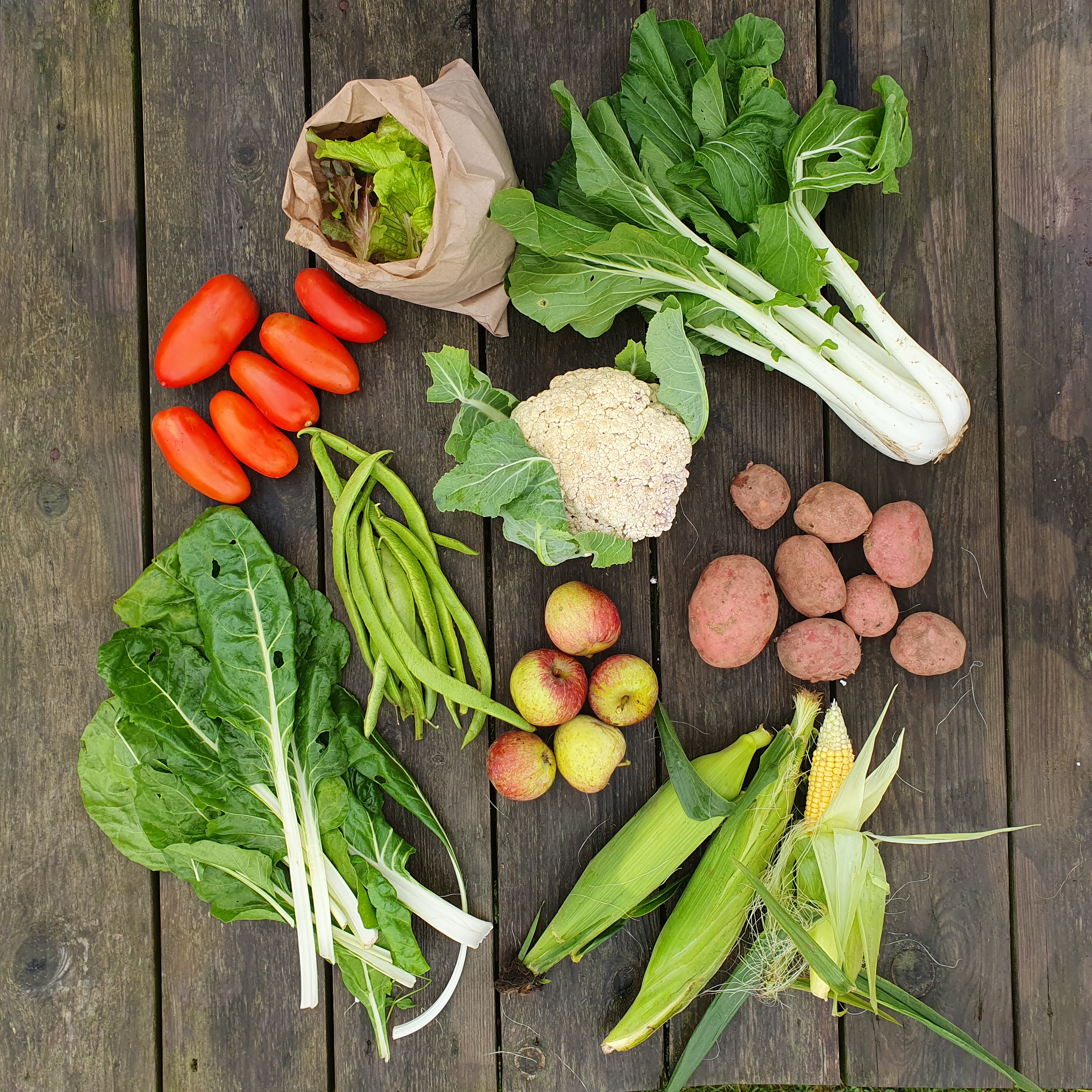
As we are not a traditional farm and instead provide our members with produce all year round we still have plenty of work to pack into our days, but less days are worked and there is much planning to be done so we are grateful for the shift out of the intensity of the summer season.
Change always comes in small ways in the Autumn. The annual ‘switch off’ of the staff fridge in the pole barn and the electric kettle (which is extra low in energy use to guarantee that our off grid solar systems can cope) and the switch to heating water with gas means we save our precious sun energy for charging floodlights to help our members navigate their way to collect their veg on the dark Tuesday evenings. The daylight hours are noticeably shorter, and more importantly for growing, the chances for sunlight dwindle exponentially.
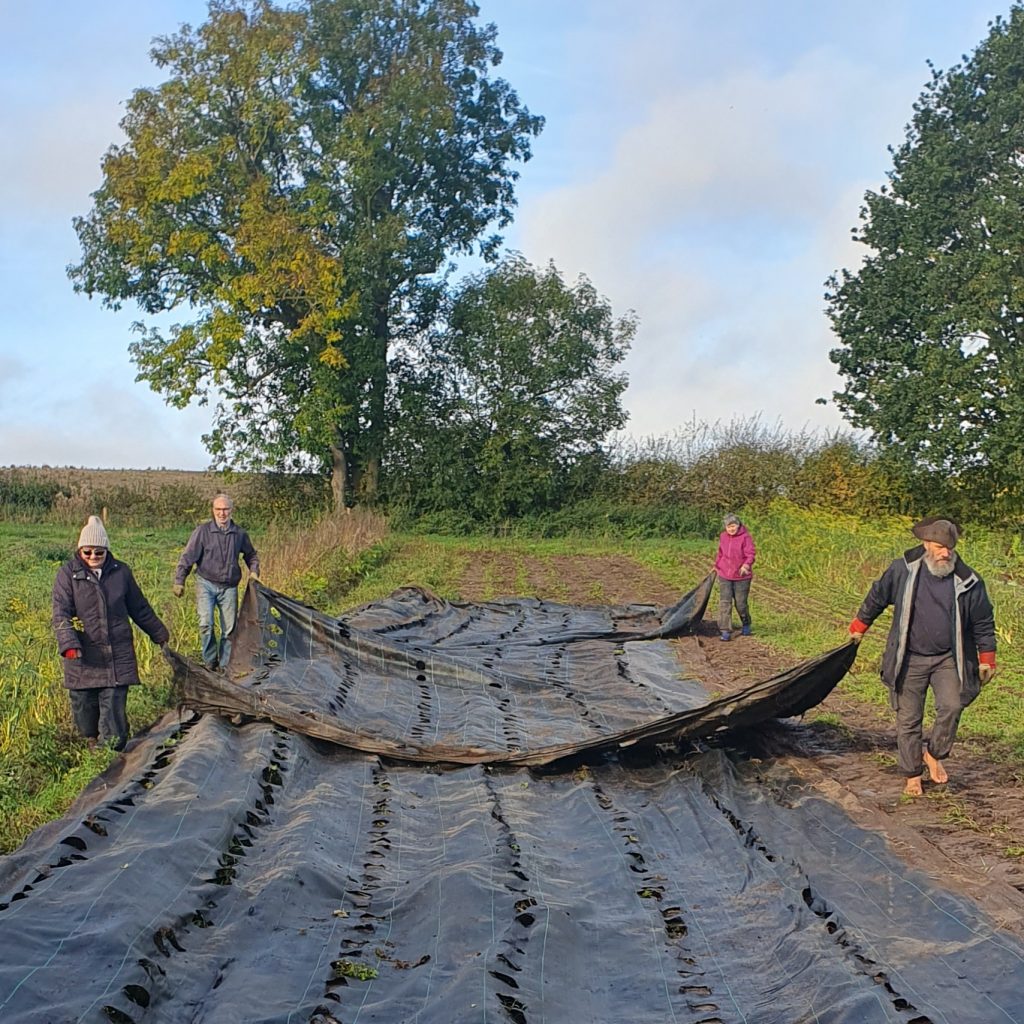
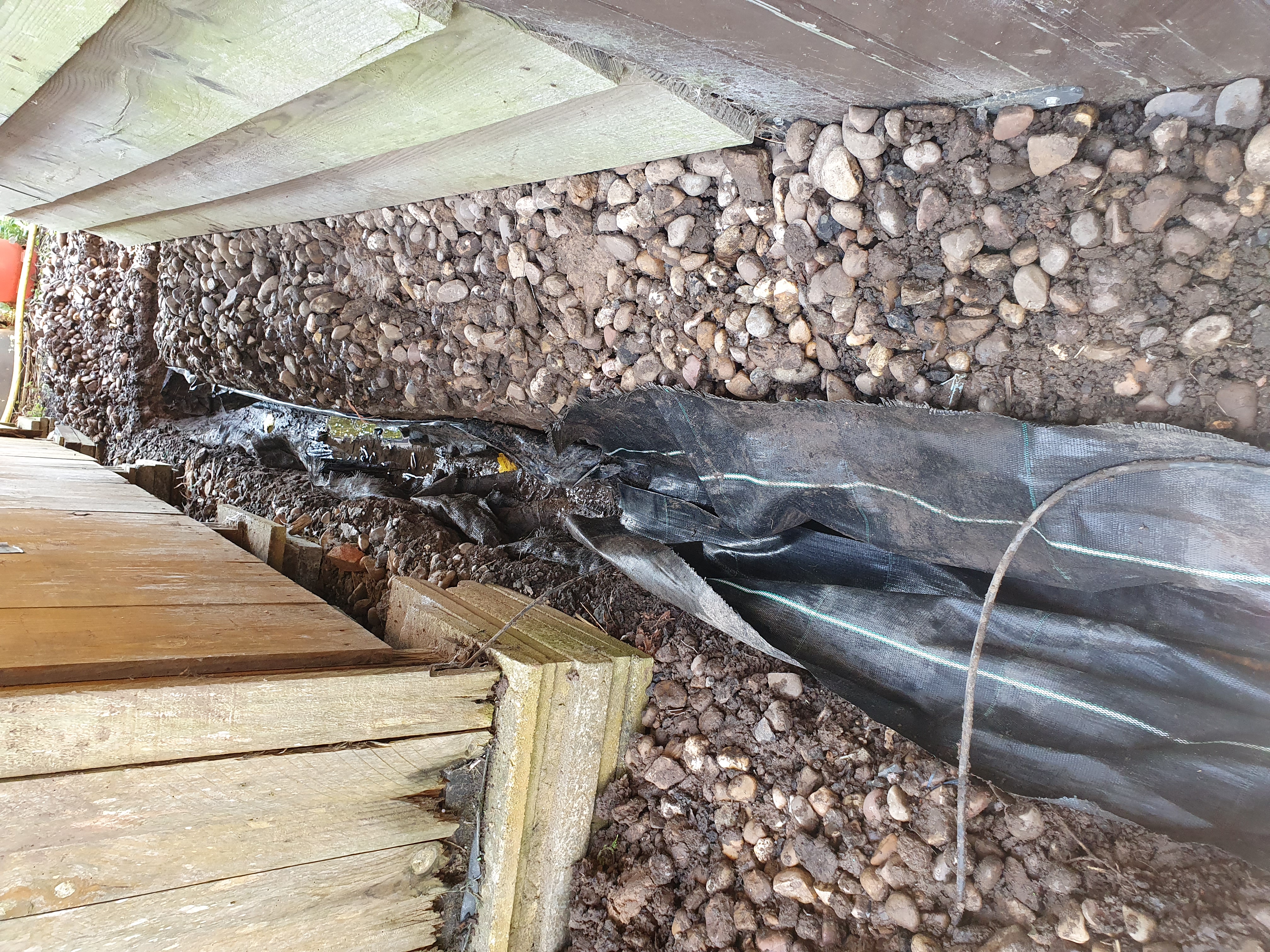
Another end of an era has been the tearing down of our completely disintegrated tool shed, which was in such bad shape that we are not even really missing it! This has been part of the work on improving the drainage around the barn. Big thanks to both Paul and Craig who have done a lot of work on this to get it to a stage where we hope to avoid having the barn flooded all winter.
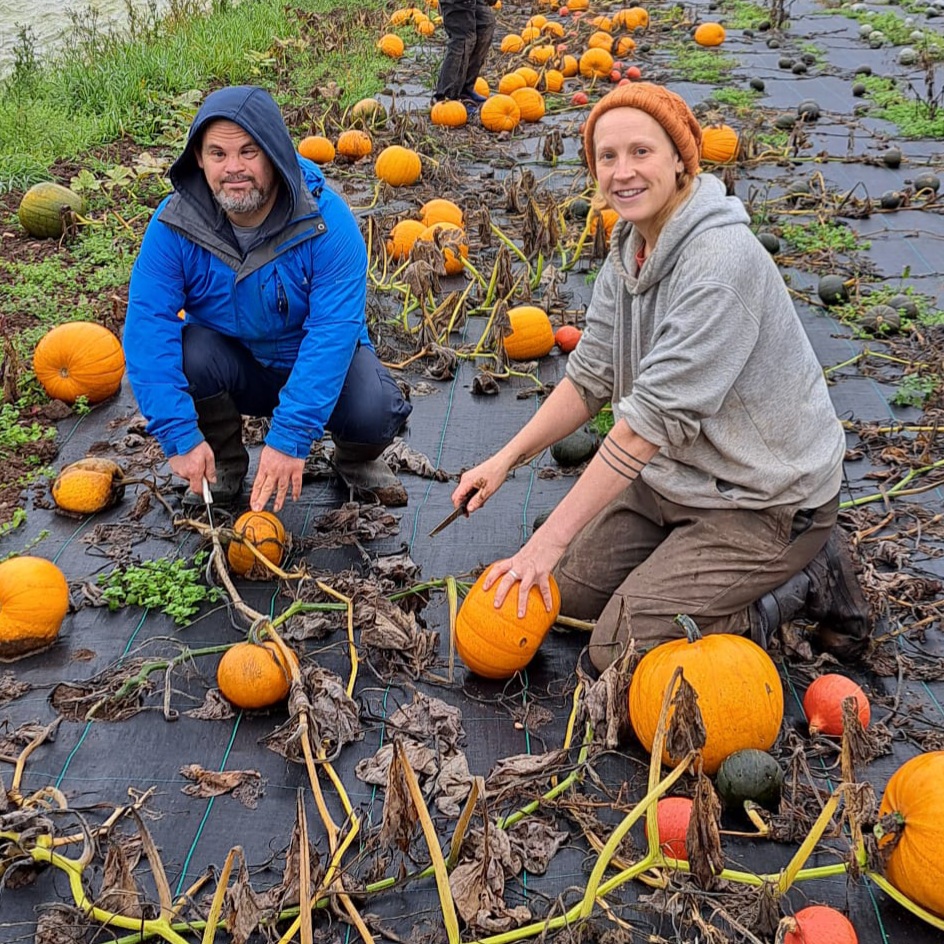
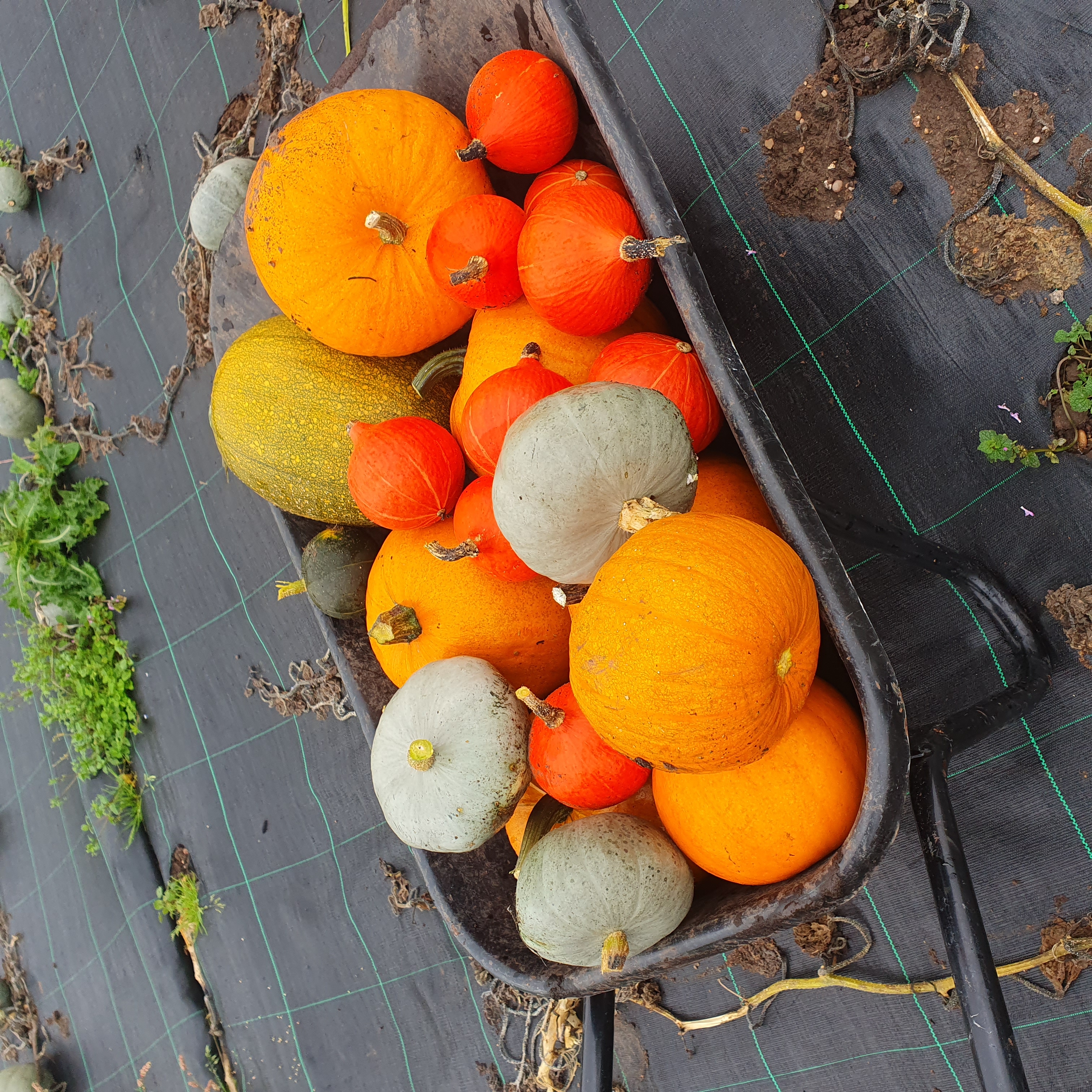
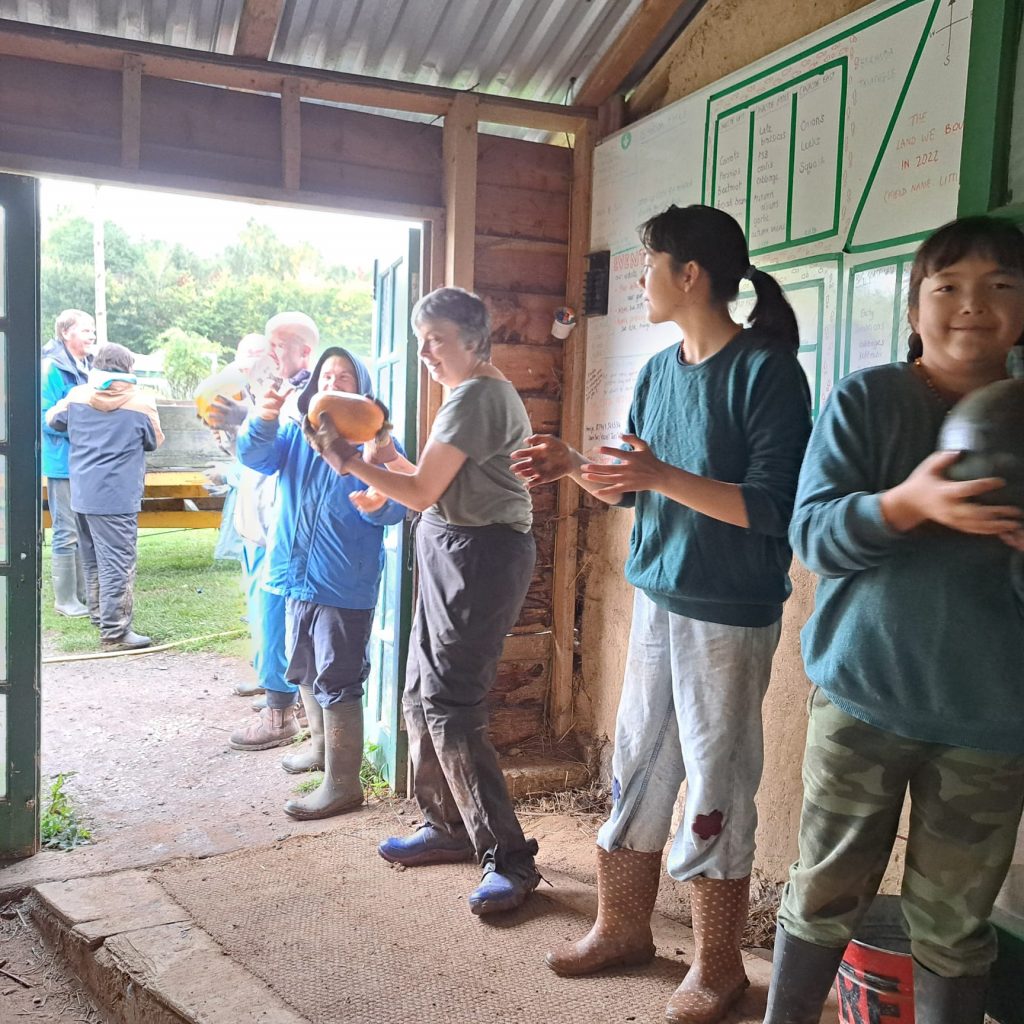
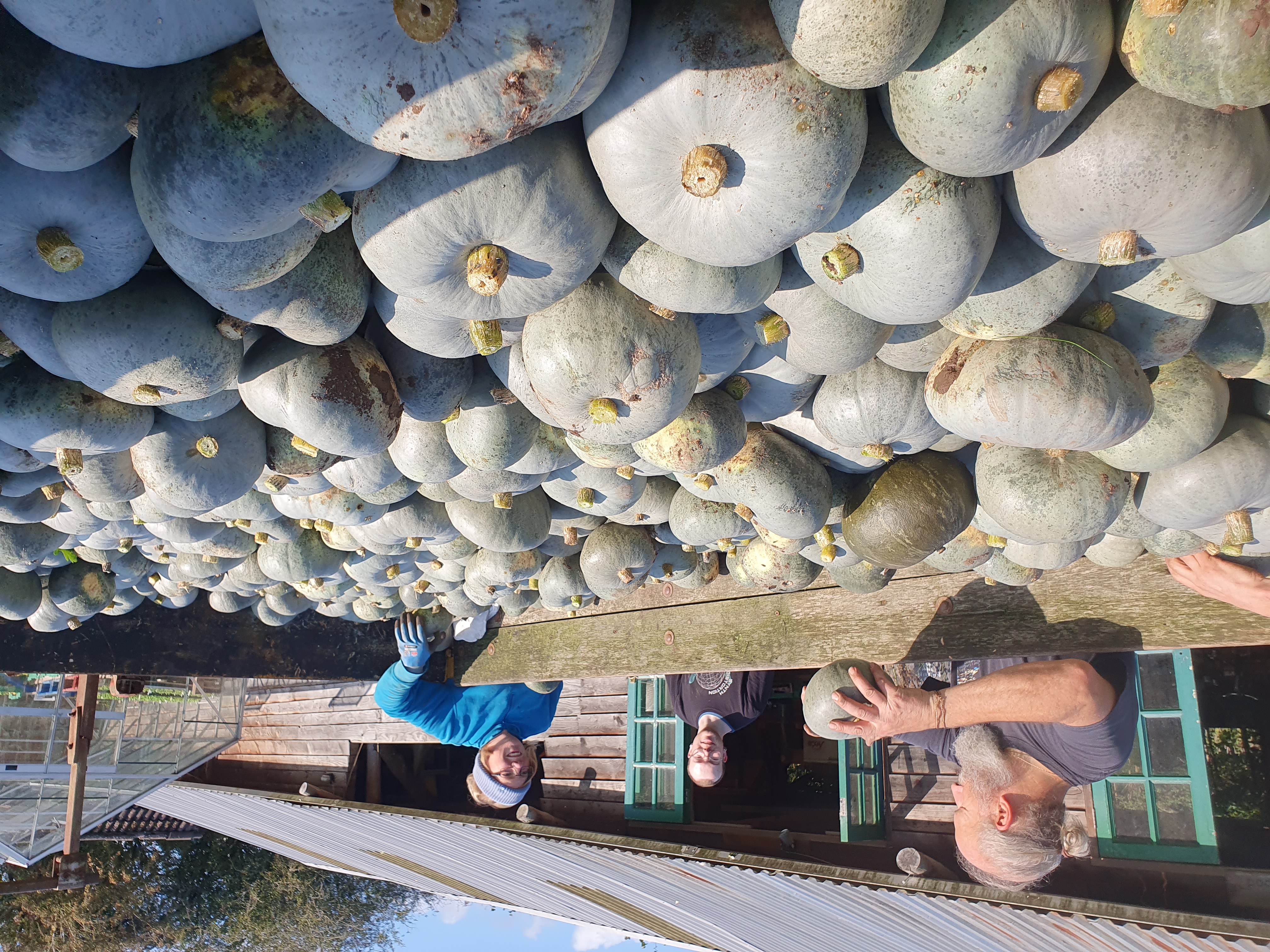
The biggest work of the last month has been a lot of our main crop harvesting. Much gratitude to all our volunteers who have been helping with this. A couple of very early frosts killed off the squash and pumpkin foliage and we had to bring them in about 3-4 weeks earlier than usual. Not only did the plants die back early, but frosts can also impact the longevity of squash in storage. We got them in within 2 days of work and stored them safely, also providing the first pumpkin share of the year in the run-up to Halloween/Samhain.
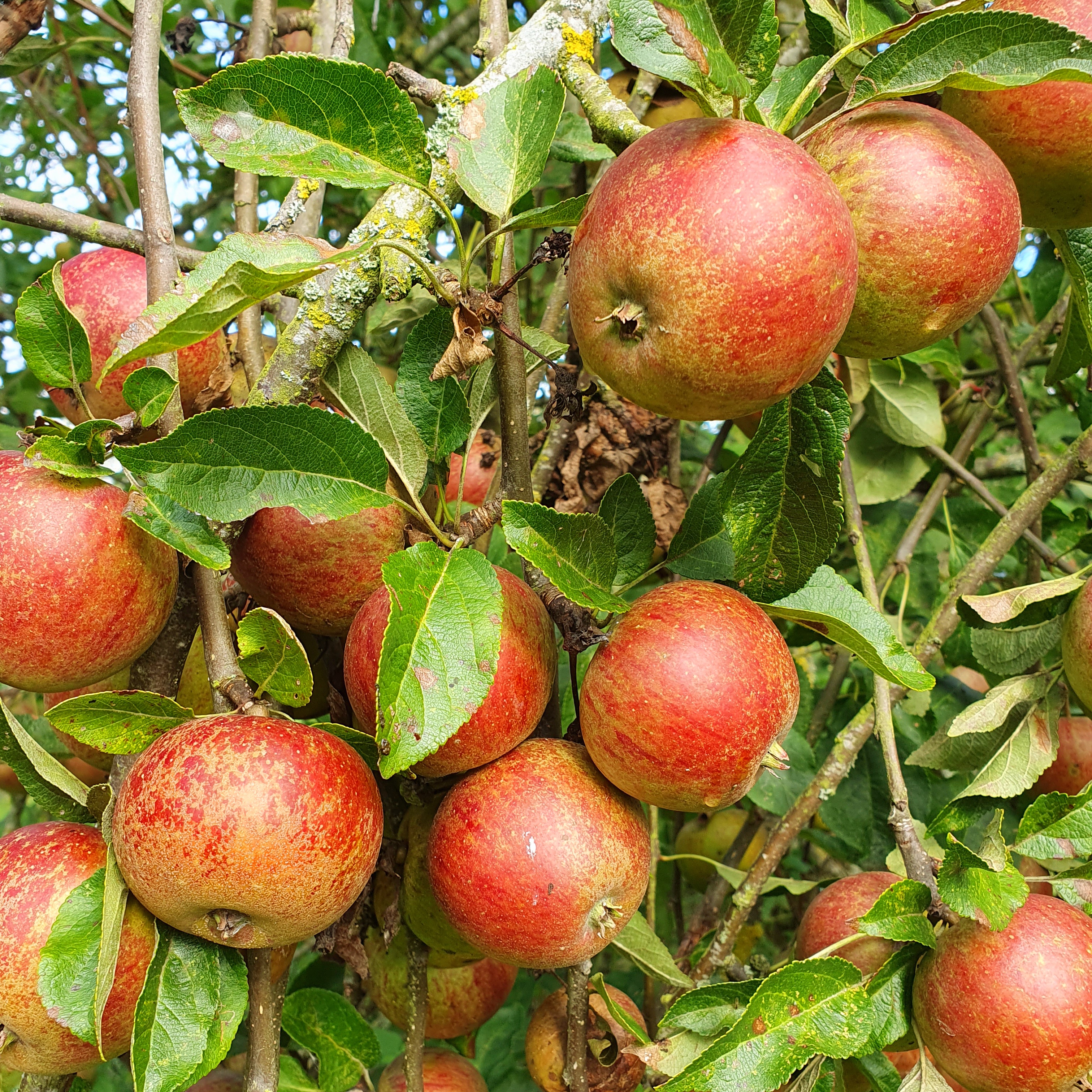
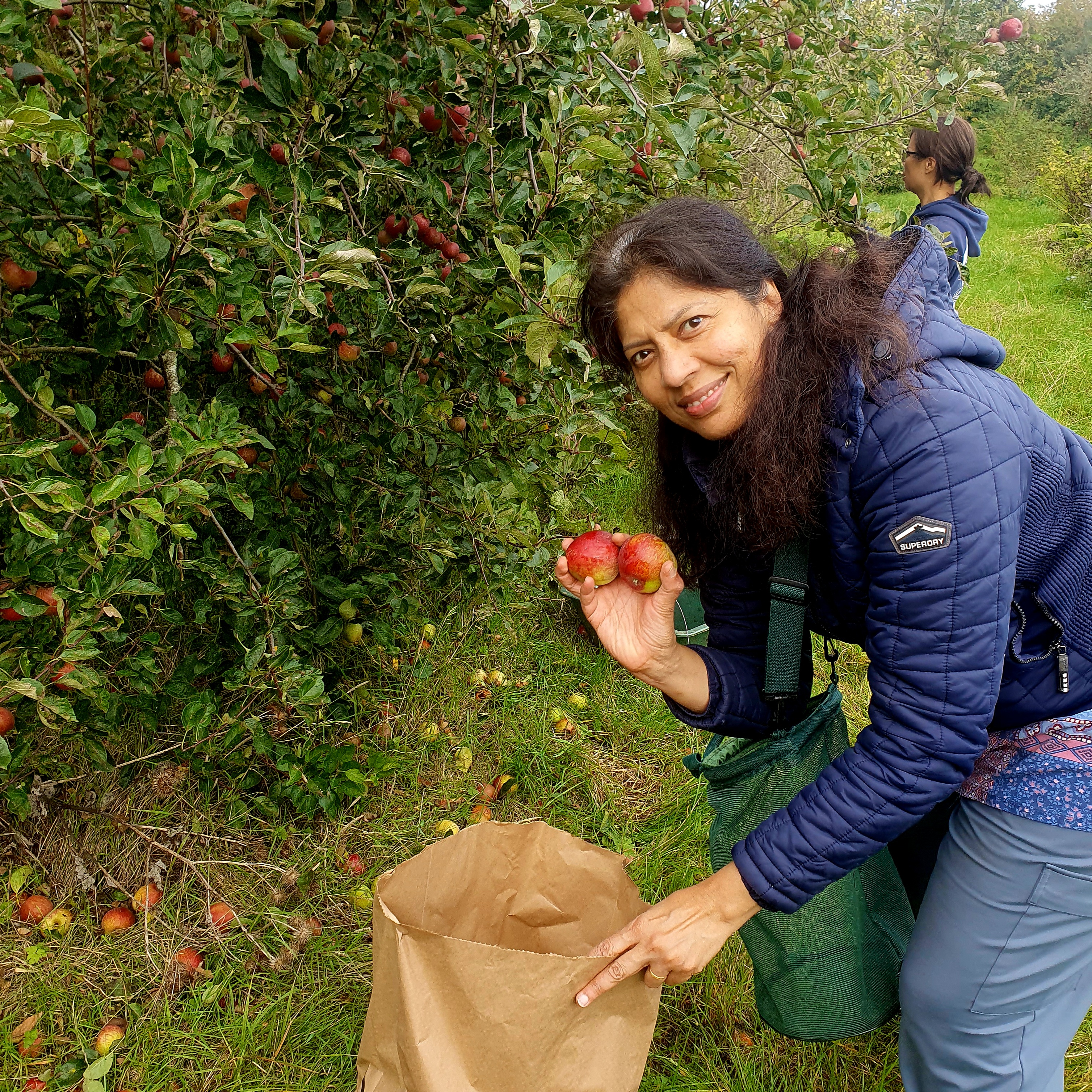
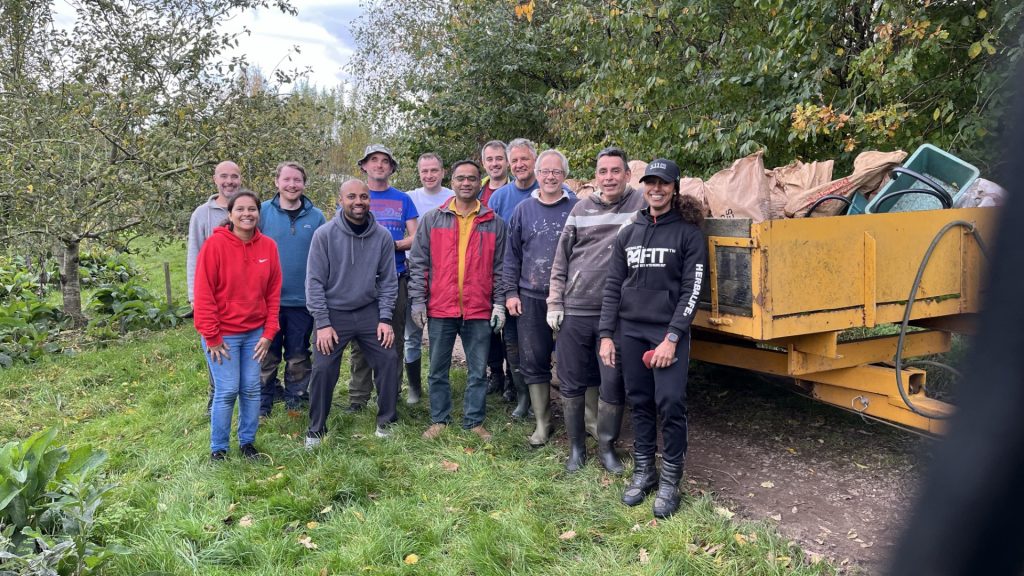
The apple harvest is ongoing, about half the crop has been brought in and by the time you read this the later varieties should all have been picked. These will be stored and integrated into your veg share over the next few months. We enjoyed the fabulous apple pressing day in mid October with the start of apple picking and lots of juice making.
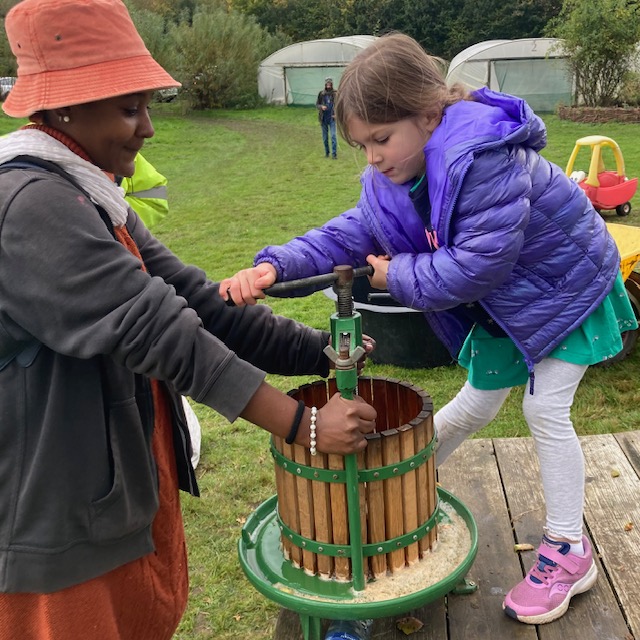
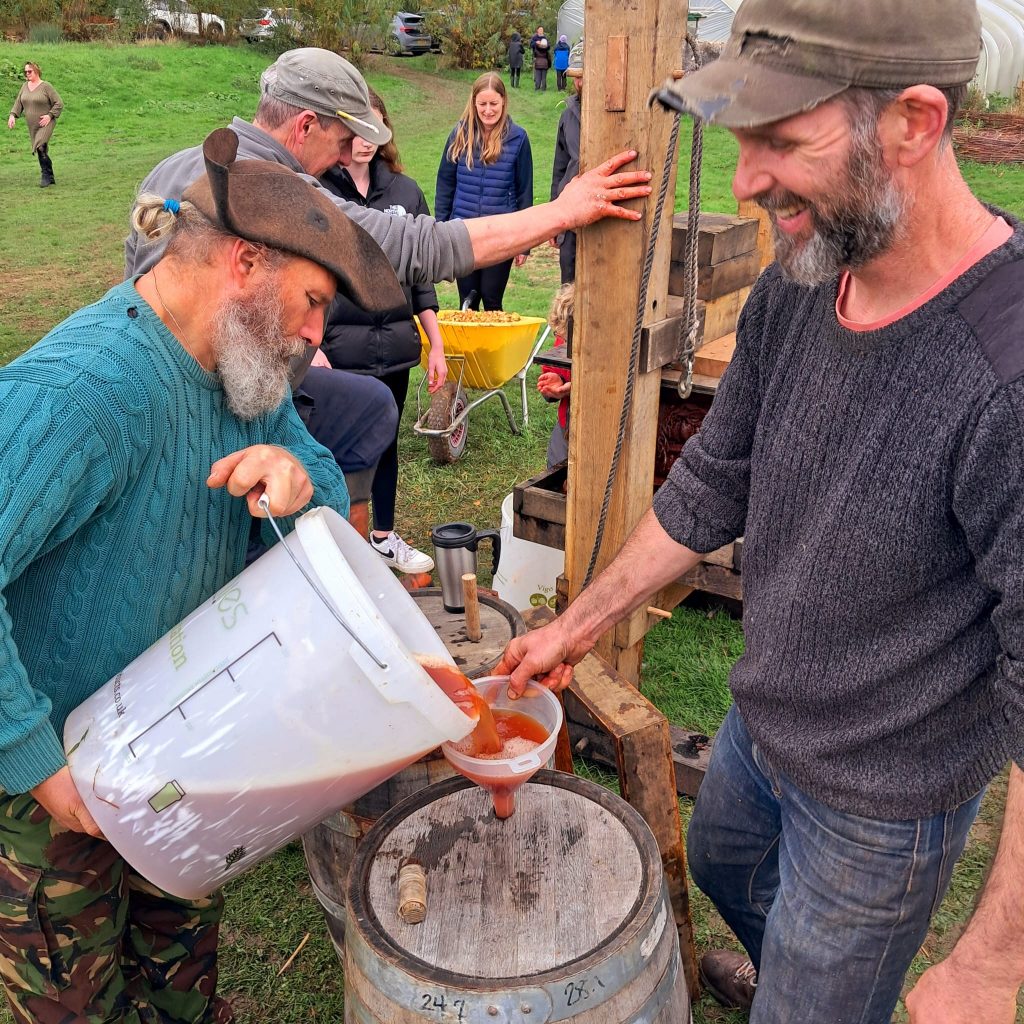
The share has been a real array of autumn colours; leafy greens are still a big part of the share with some huge pak choi, beautiful chard and we had a lovely couple of shares of tasty sweetcorn (which are not getting enough sunlight hours in Britain and often struggle with growth here). We had some surprise cauliflowers which came up a lot earlier than expected and made a great addition to the share for a few weeks, and we particularly enjoy the amazing purple turnips. It’s been another strong year for tomatoes which have been abundant all the way through the summer until now.
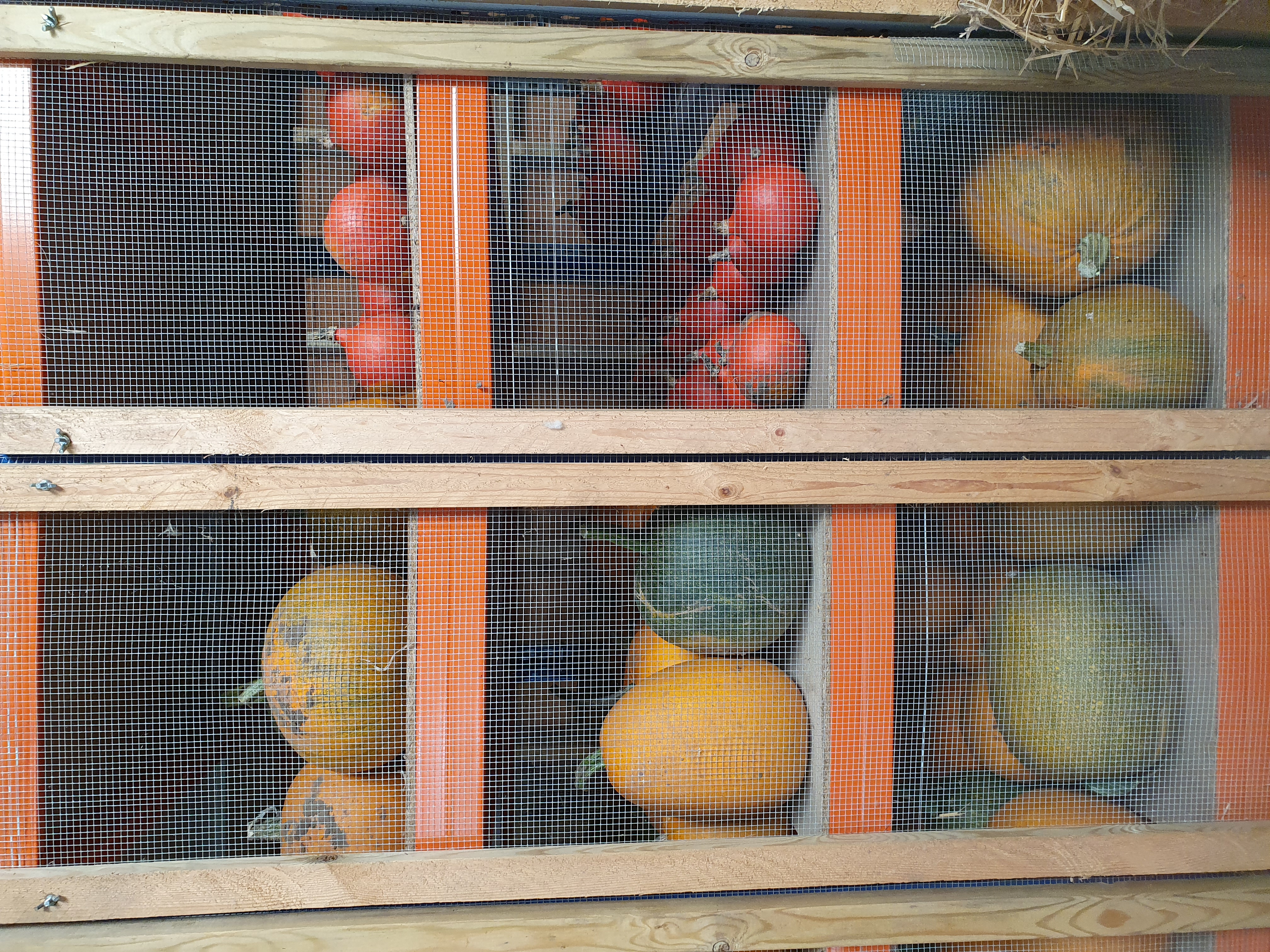
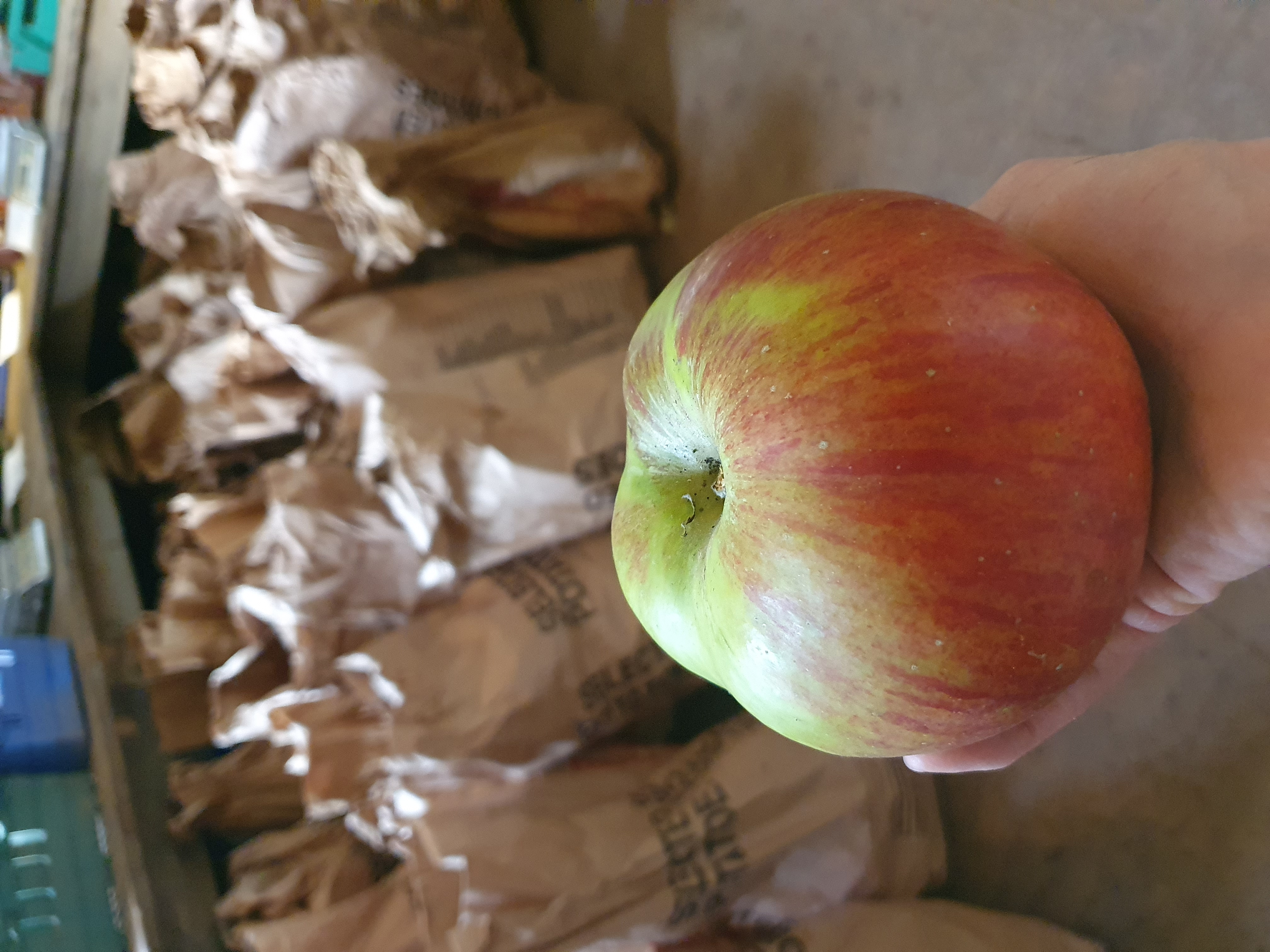
We have begun buying in a little supplementary veg this week, all organic and grown in the UK, to make sure that we do not deplete our existing crops too quickly too and early on so we protect against a large harvesting gap next year. We hope you enjoy the carrots and onions in addition to the array of veg we were able to grow here on site.
The last of our main crop harvests to be done in the coming weeks are beetroot and celeriac so do come and join us when these volunteer sessions are advertised.
The growers, October 2024
2024: July news
A very warm welcome to our new members who have subscribed after their produce trials – and hello to all Canalsiders who take the time to read this newsletter! The intent is to keep you connected to what is happening in the fields and to the source of your food and the people who grow it, as is our CSA ethos.
As usual, July has been a flat out kind of month! It’s been all hands on deck to get the last main plantings into the ground which we’ve done well within schedule. Joining all the main crops mentioned last month we now have leeks and late brassicas (over wintering cauliflowers, purple sprouting broccoli and cabbage) planted as well as various other rotational crops (e.g. the popular New Zealand spinach planted in the wake of tunnel potatoes).
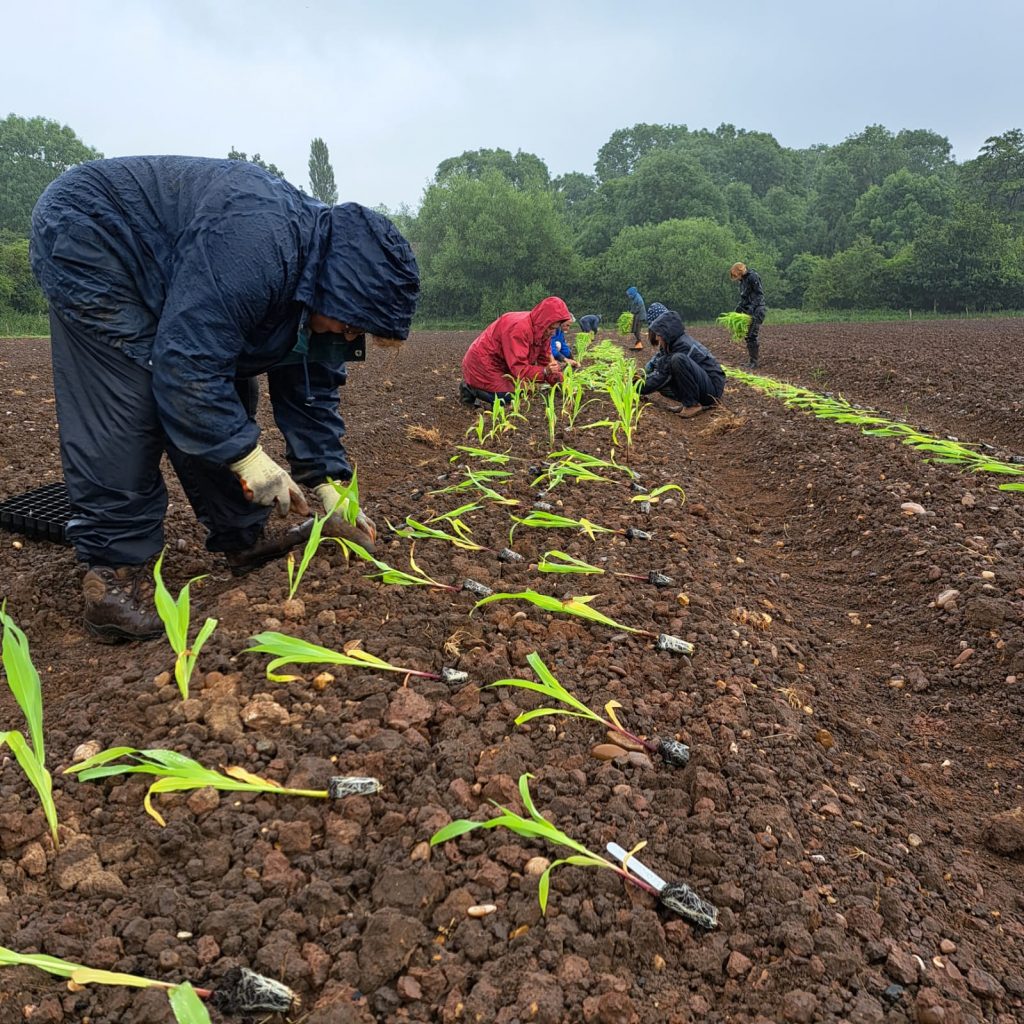
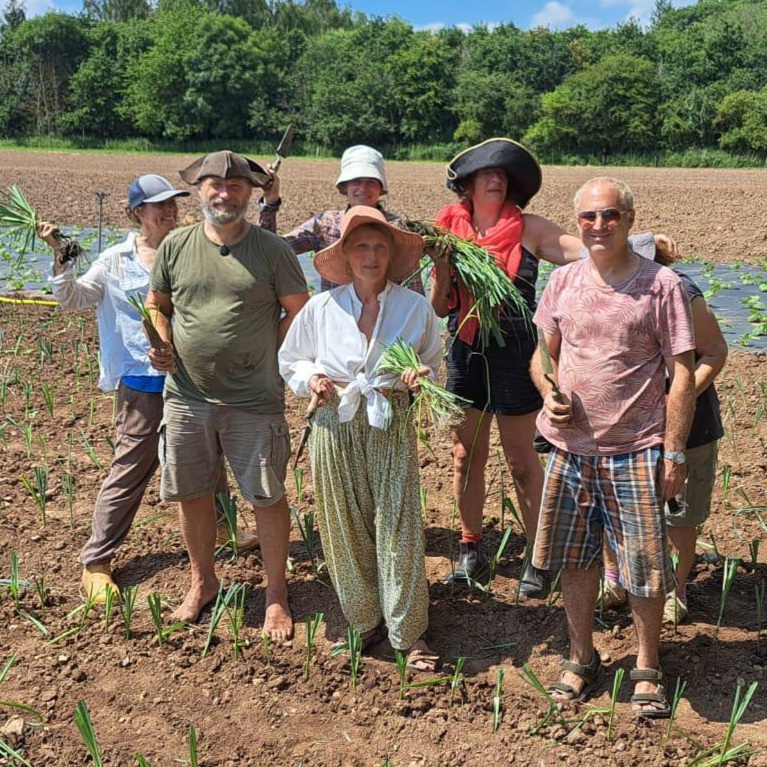
The weather this month has been a game of two halves. Decent rain earlier in the month gave us a welcome break with irrigation, but obviously it wasn’t as warm as some of the plants would like. Summer crops like peppers and aubergines need much more sun and it’s been a slow start to the season all in all due to the earlier delays and cooler weather. The share has looked more like June than ‘as it should’ in July. The beans and tomatoes are starting to pick up now but crops we would have expected to be harvesting already like our first planted kohl rabi and cabbage are still growing and our tunnel carrots never got that big before they needed to be picked. Tasty all the same, and the share has felt fresh and varied. Spring onions have been a feature of my recent meals! We’ve also been getting some of our biggest harvests of cucumbers and the courgettes are really kicking in now. We hope you’ve enjoyed some of the berries and currants that the orchard has offered us too.
↖️ Harvesting early polytunnel carrots
Picking abundant cucumbers ↗️
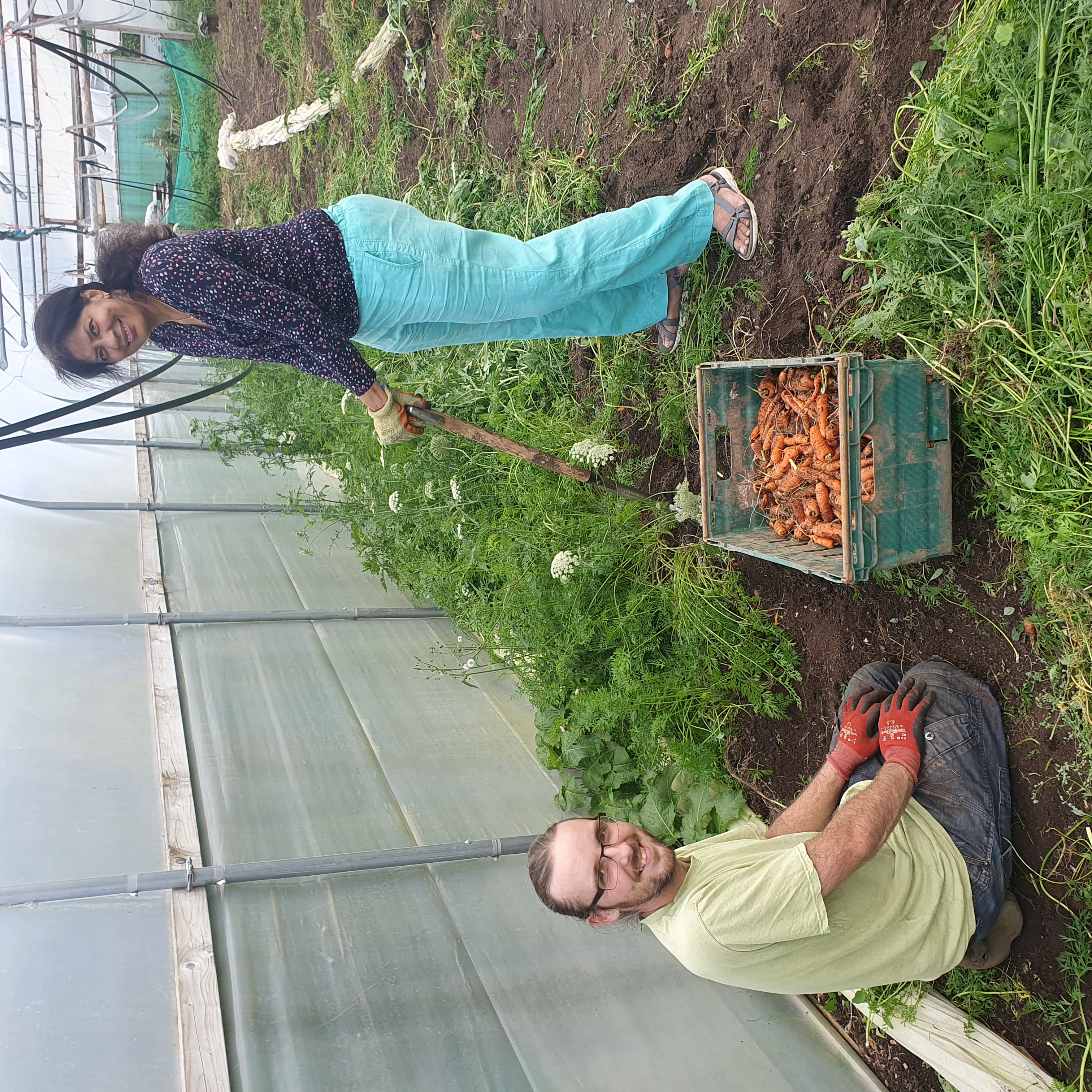
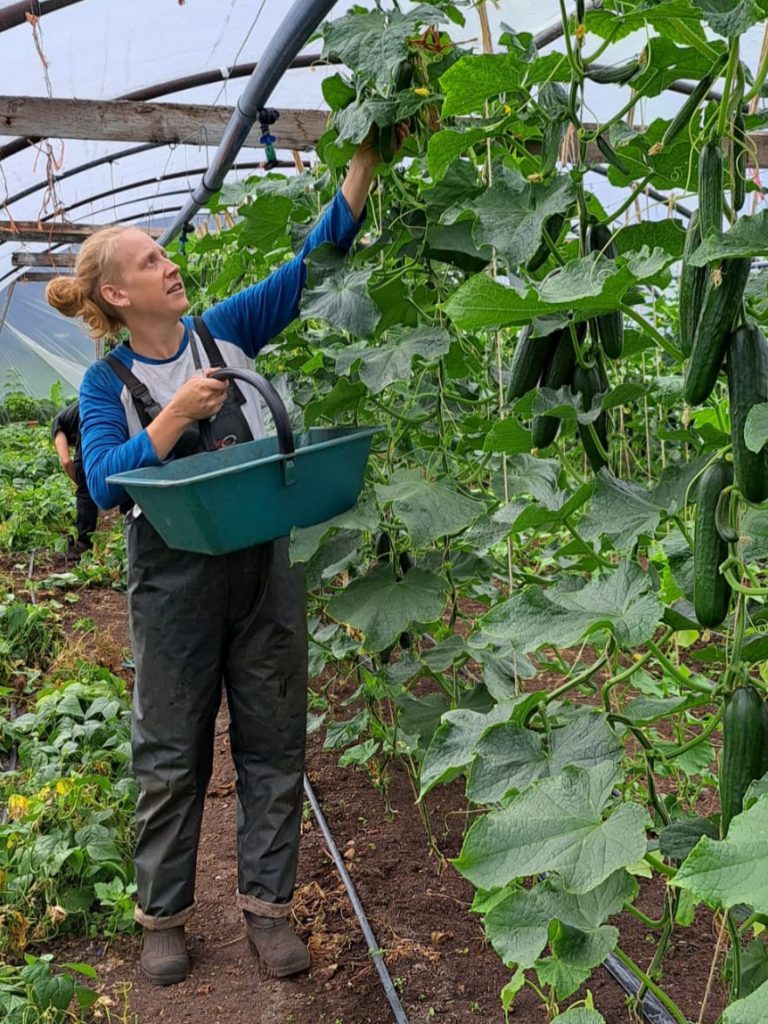
The second half of July then kicked into sunshine and summer arrived! Great for crop growth and everyone’s spirits whilst bringing the inevitable challenge of field irrigation.
After a hot week and the 30 degree Friday we found a problem with our water pressure (due to an issue with Severn Trent) which left our fields unwatered over a weekend and highlighted yet again the issues of our system. Had the issue gone on indefinitely, it would have only been due to unforecast overnight rain into the Monday that our crops would have survived. As a grower responsible for your food, I can’t begin to explain the stress and feelings of powerlessness when things like this happen. To walk around the fields and see everything we built from scratch on this land, the many people and hands who have co-created this place over the last 18 years and the journey each of these specific crops have made this year and the care that has gone into tending them: my gratitude to the rain is immense. And the fragility is palpable. Even when the water pressure is working fine, it is still not high enough to water all our fields adequately during a drought period. We must find a way to bring sustainable and off-grid systems to our farm, we must find solutions to adapt to the challenges and these changing times and preserve the ability to grow our own food amongst a UK farming crisis and an impending food shortage.
But for now – back to the minutia. Weeding is the name of the game for the coming weeks, as anyone coming to volunteer at the moment well knows! We are also broadcasting our green manures and trying out a new under sowing in our late brassica section. This is a special mix created by Ian Tolhurst that we will broadcast after our initial weeding of the brassicas to create cover and suppress weeds, fingers crossed it works.
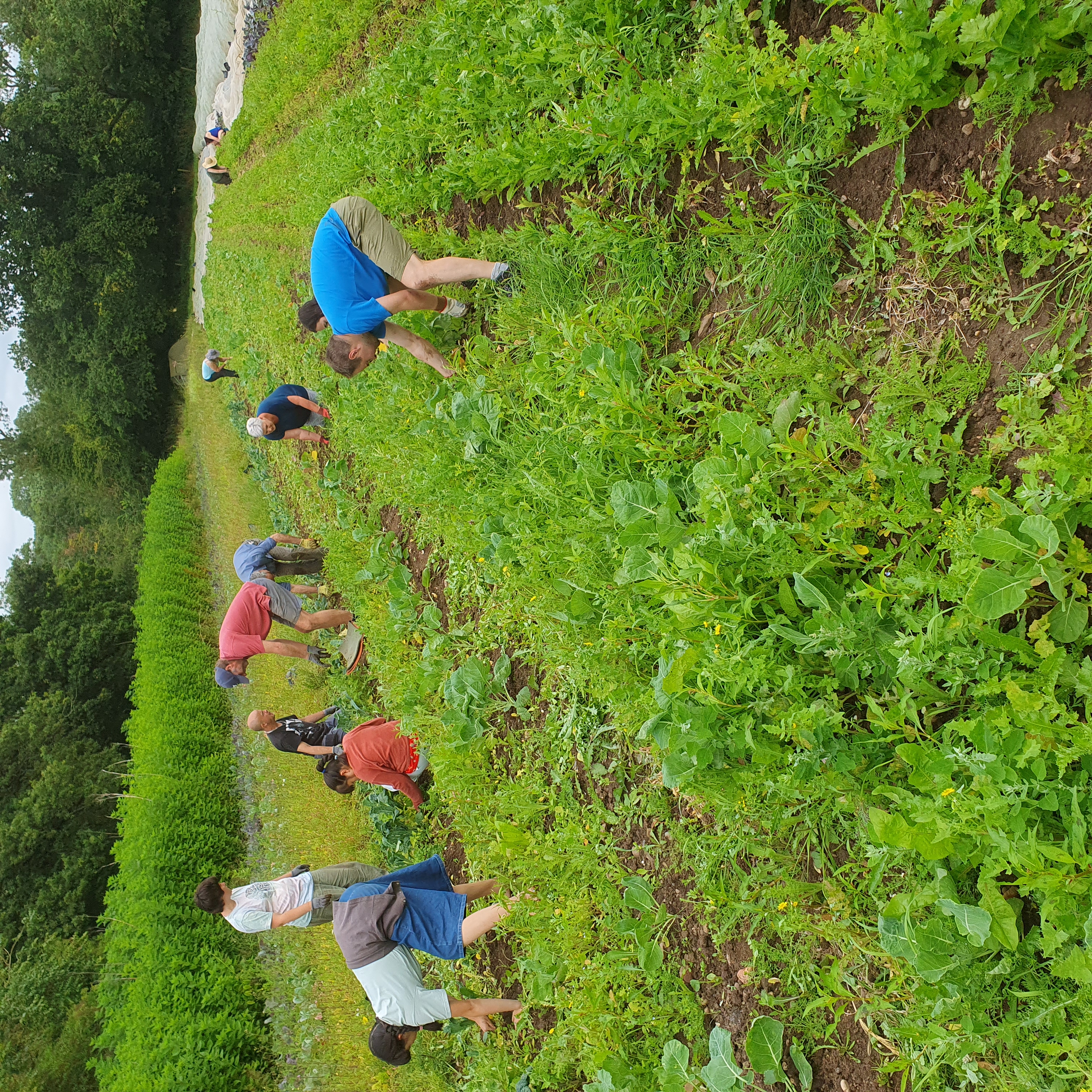
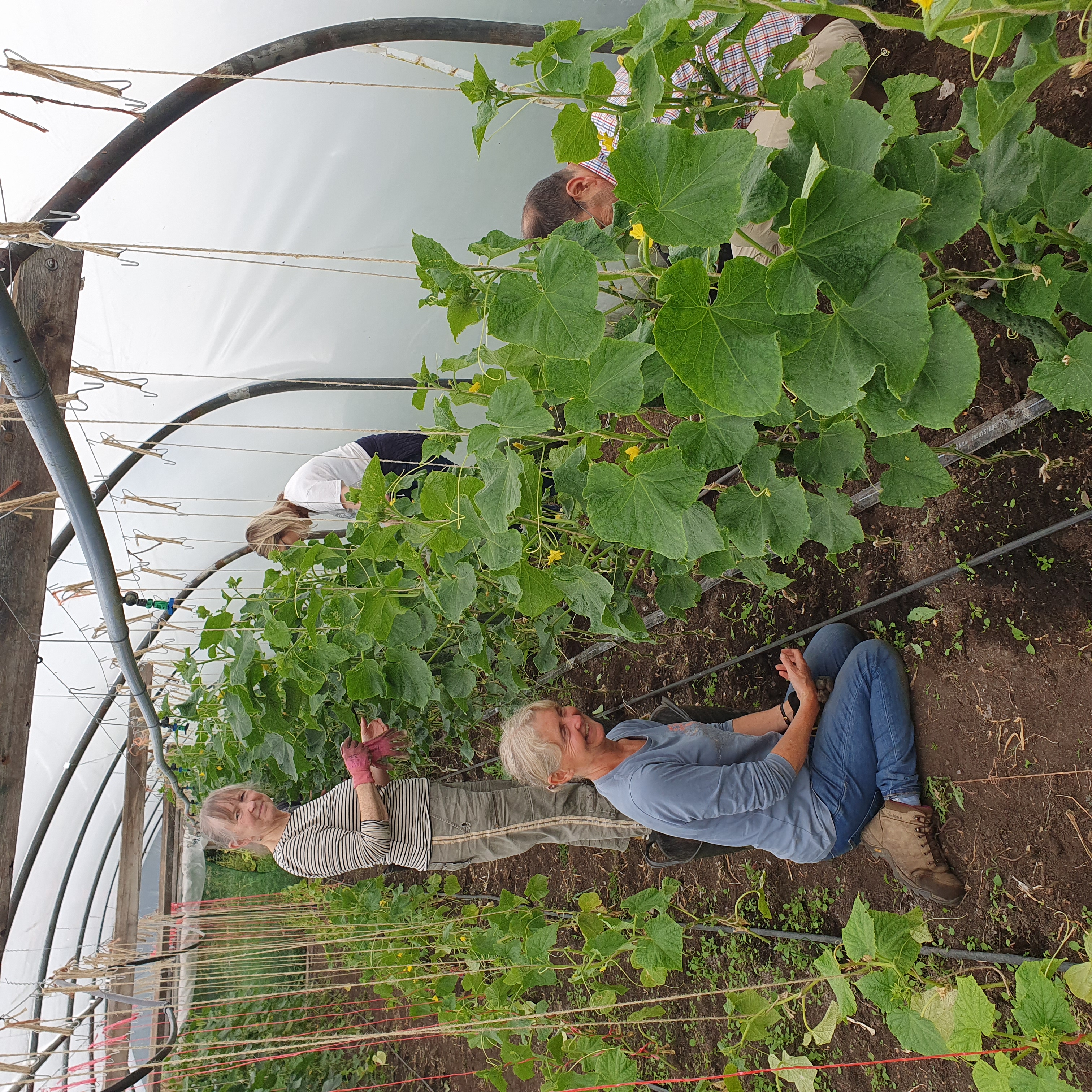
Thanks so much to everyone who has come out to help the growing work this month. It was great to see some new faces as we trialled a Tuesday afternoon session and we’ll let you know through Ali’s weekly bulletins when we do any more of these – otherwise do come down during the school holidays if you can to join our regular Wednesday volunteer session (10am – 1pm) – we love to see you.
Thanks for reading and ‘til next time
The growers, July 2024
2024: April news
Welcome to the inaugural ‘monthly news from the farm’. We’re changing our comms a little bit so that at the end of the month you’ll get a longer piece of writing from your growers instead of snippets in the fortnightly updates. We hope this keeps you more connected to what’s happening in the fields!
April is always an unsettled month of juggling fluctuating conditions. We start to really feel Spring in the air with some relief and gratitude for longer and lighter days and where we literally see plants getting bigger by the day. Until mid-May though we can’t really relax and feel confident that the frosts have passed. Cold nights and hot days mean constant and time consuming monitoring and care for our modules and new plantings.
We’ve finally had some consecutive dry days with some sunshine and mammoth winds which have been great to dry out the land and the fields finally became less of a bog as April continued. Frustratingly, there were still many downpours throughout the month which interrupted the process of mowing, ploughing and prepping the land for planting which ideally would have begun at the start of April.
As I write this I am listening to the hum of the plough across our fields which is music to my ears! By the time you read this the majority of the ploughing needed will have been done and good progress made on the first field plantings. This is a huge relief and moves us out of the limbo we’ve been in.
Anyone who has kept up to date with UK farming news knows it’s a pretty dire situation out there. The UK met office data shows it’s been the wettest 12 months in England on record (bearing in mind records only began in 1836). To give some perspective, the local arable farmers who we contract to do our ploughing have only managed to plant about a tenth of what they normally do. This is all likely going to result in UK wide problems down the line. In many ways we are lucky that as a CSA we farm a variety of crops at various times as well as in our tunnels where we have more control over the conditions, so there is more resilience in that there should always be some crops that do well.
Whilst we waited for the fields we’ve been working hard to do everything else we can so our tunnel crops are well on schedule. We decided to do some inter-cropping in the beds to make up for some of the early crops not planted outside so we’ve planted lettuce, beets and spring onions in amongst summer tunnel crops as an experiment. The courgettes, cucumbers and tomatoes are planted up, as well as extra beds of lettuce in any spare gaps. The tunnel potatoes, carrots, peas and leeks are also all coming along nicely so we are looking forward to harvesting the first of these fresh crops for you asap!
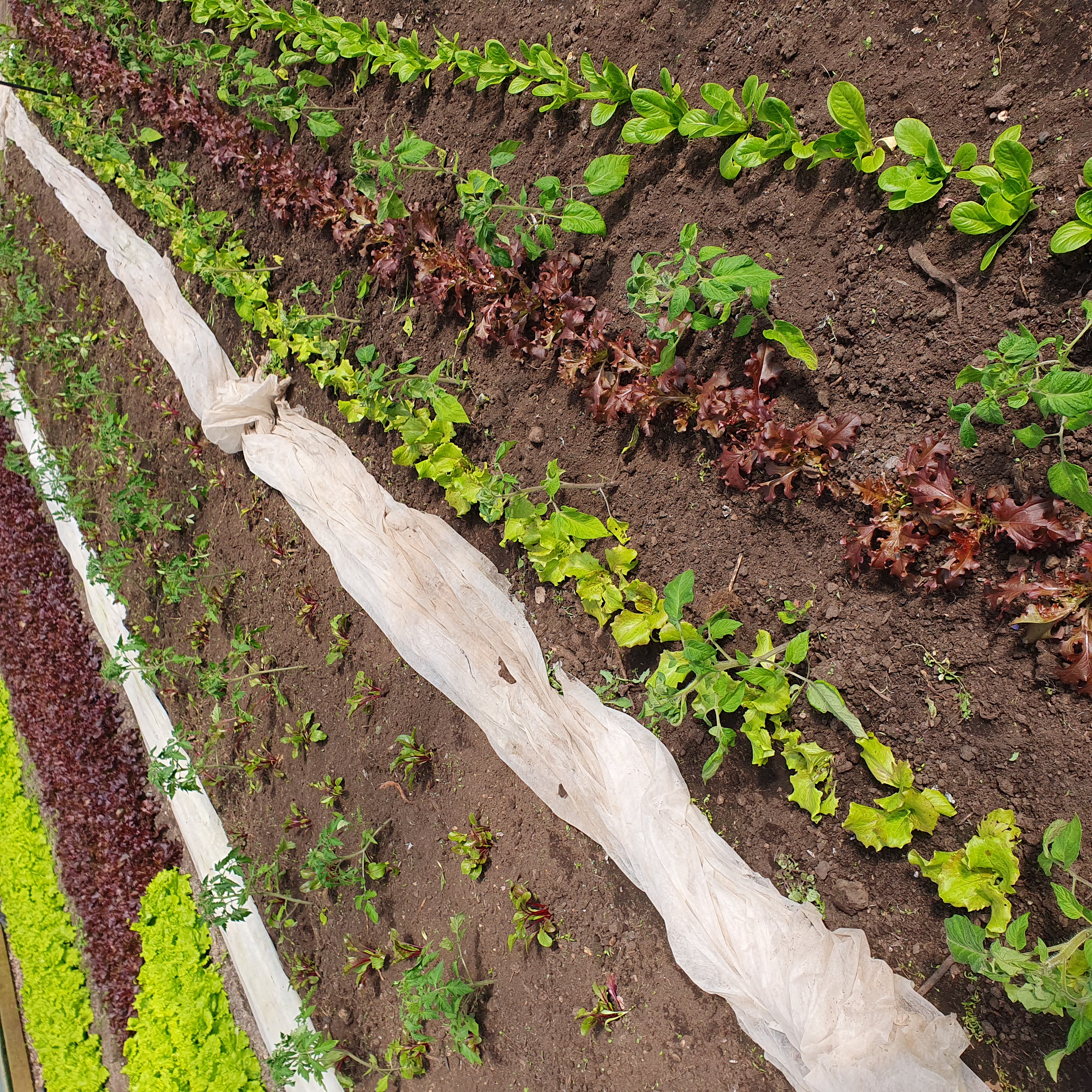
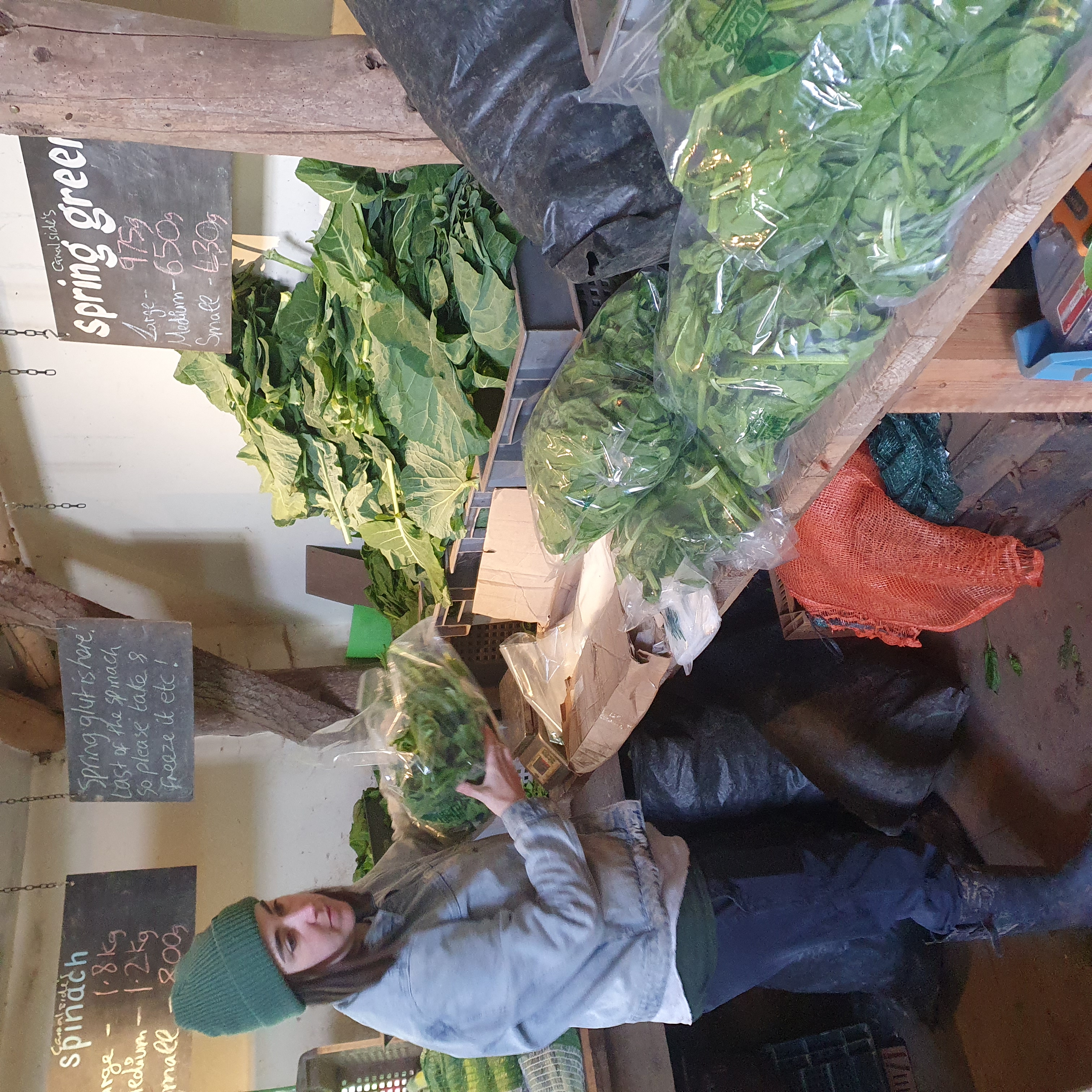
It’s been strange adapting to buying in veg and lessons learnt along the way – not always as simple as it might seem. There is certainly no ‘one stop shop’ if you want both organic and UK produce after this past season. We’re finding the wholesalers variety of produce is dwindling now but this is to be expected as almost all of UK produce is subject to the same hungry gap issues.
We’ve been really happy with the shares this month and it’s been lovely to hear members going away happy. We’ve had lots of lovely Canalside produce to supplement the bought in veg too – including a huge abundance of fresh greens – chard, spinach, spring greens, and salads. The spring glut has well and truly been upon us and we hope you’ve been finding ways to cook and store it all!
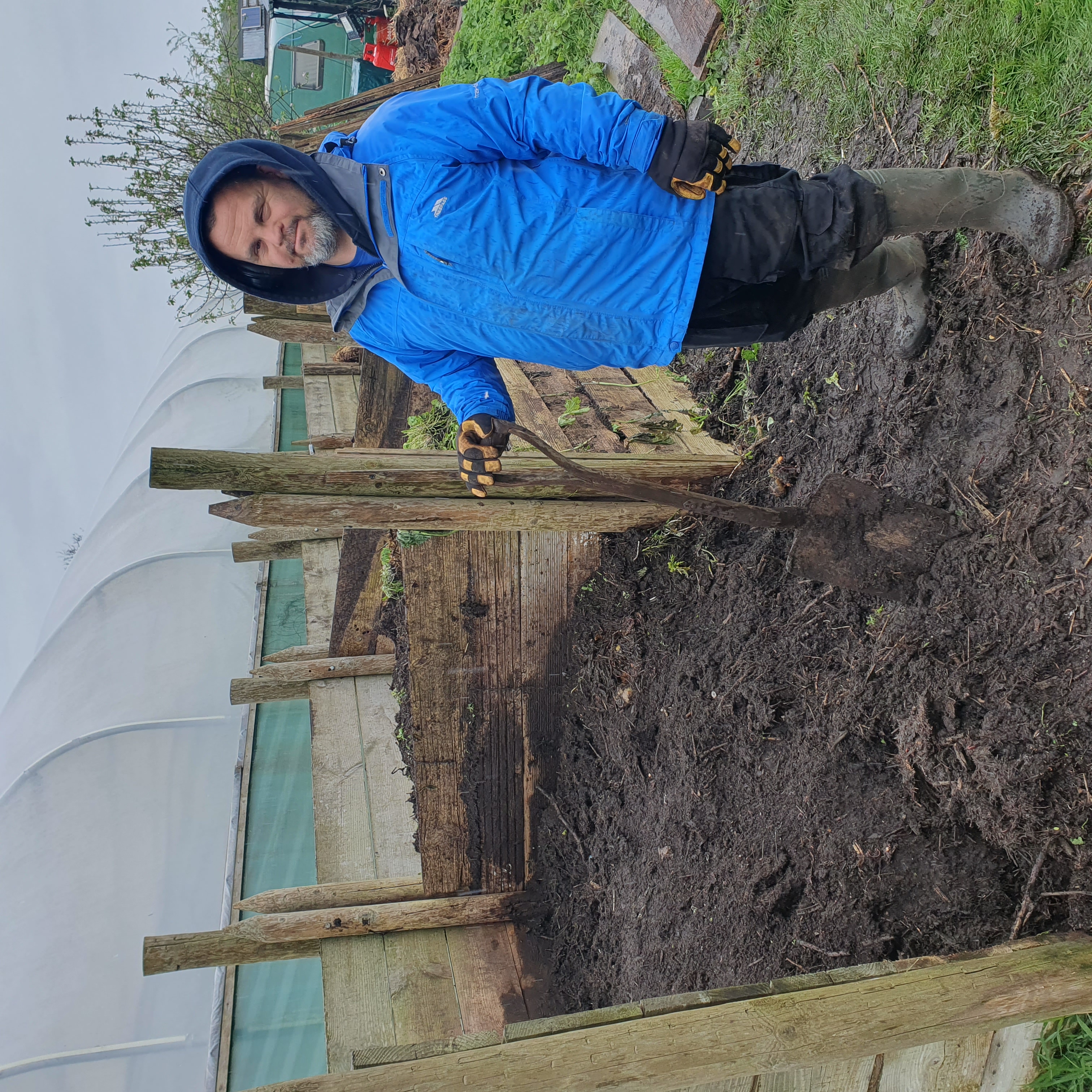
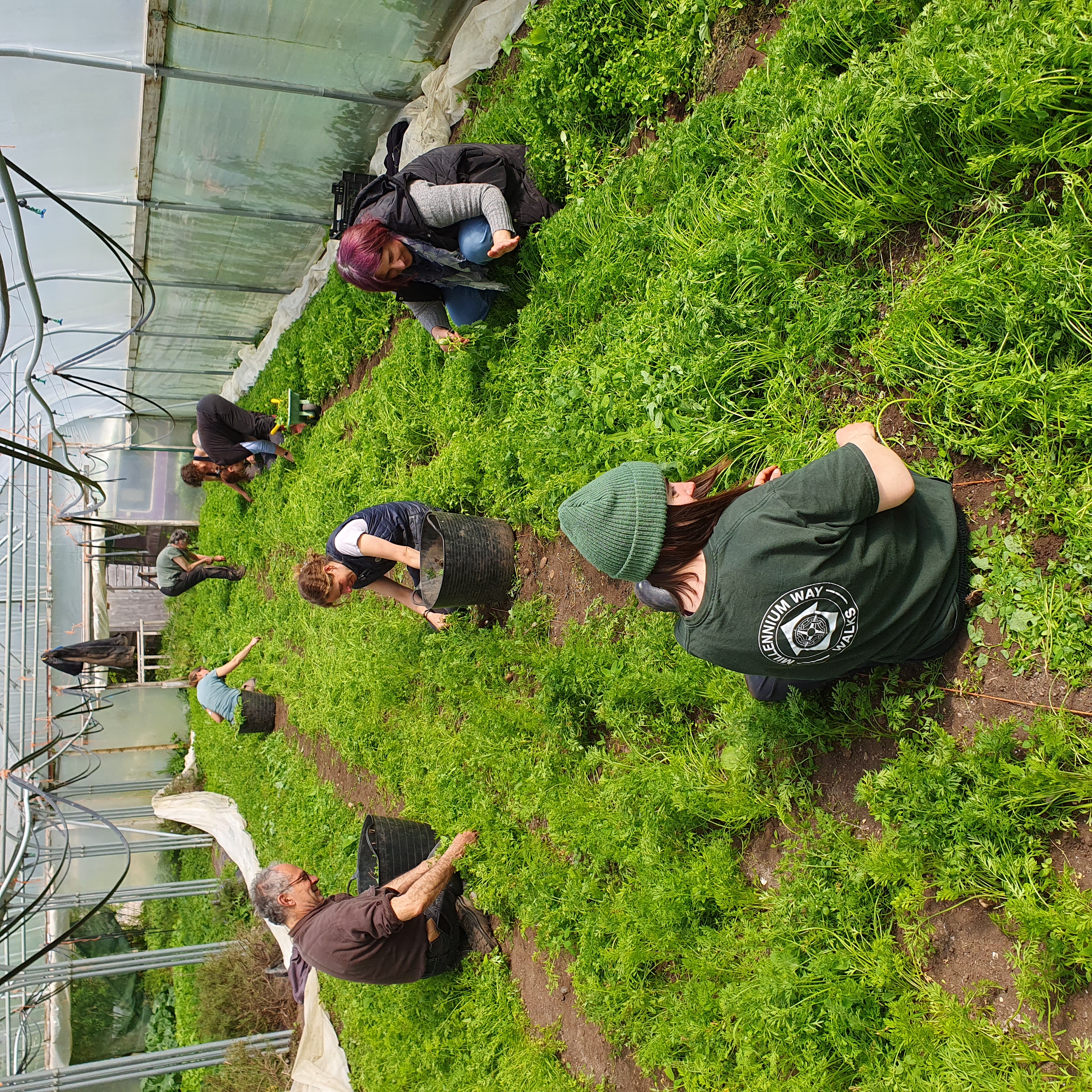
Our volunteer mornings have been well attended and we are so appreciative of everyone who lends a hand – so many muddy mornings spent picking carrots in recent months as well as cutting back hedges, turning compost, clearing, weeding and planting in the tunnels and outside this past Saturday. One volunteer commented that they will never moan about the muddy carrots again now they’ve experienced what it’s been like to harvest them this season! This is why we love out members getting connected to the process.
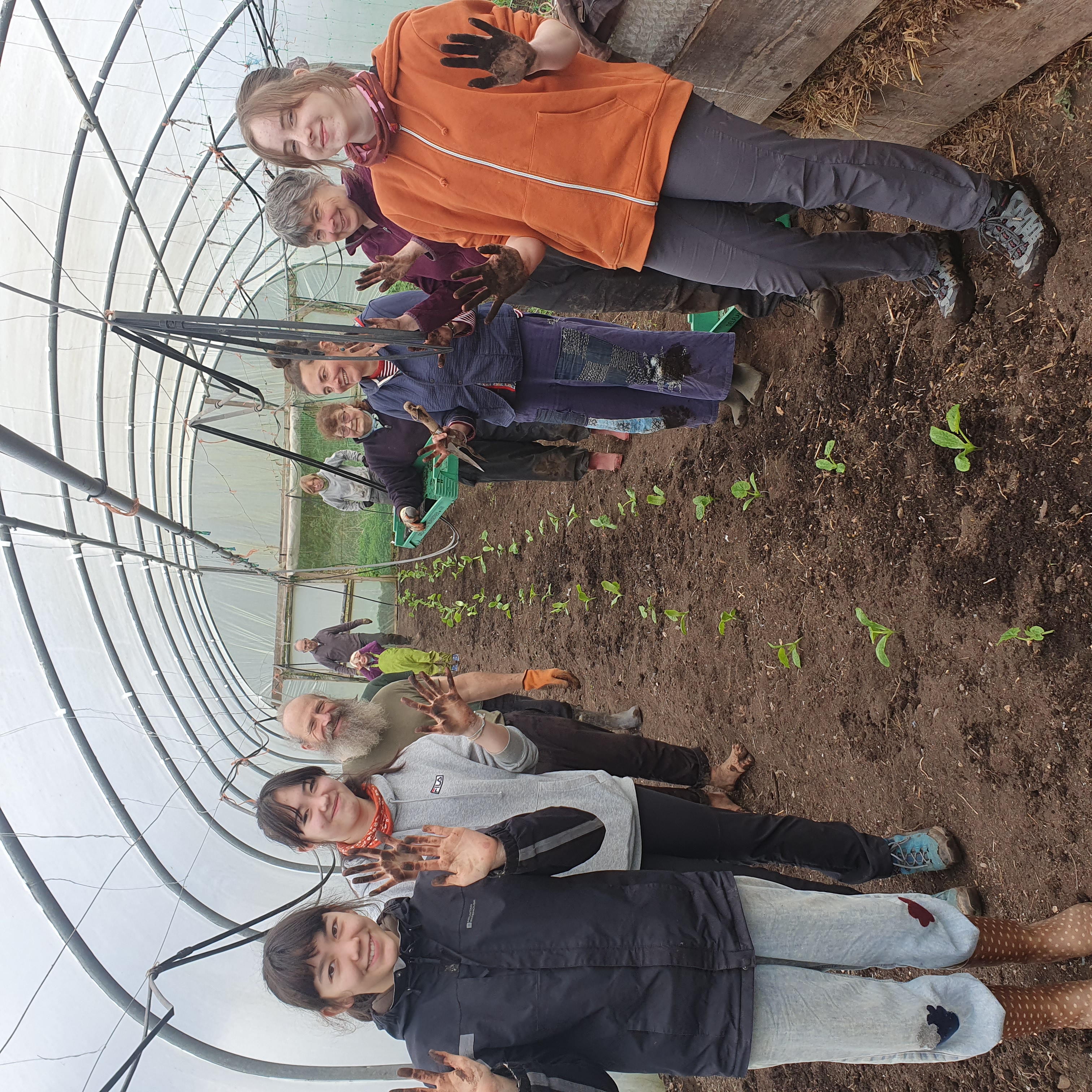
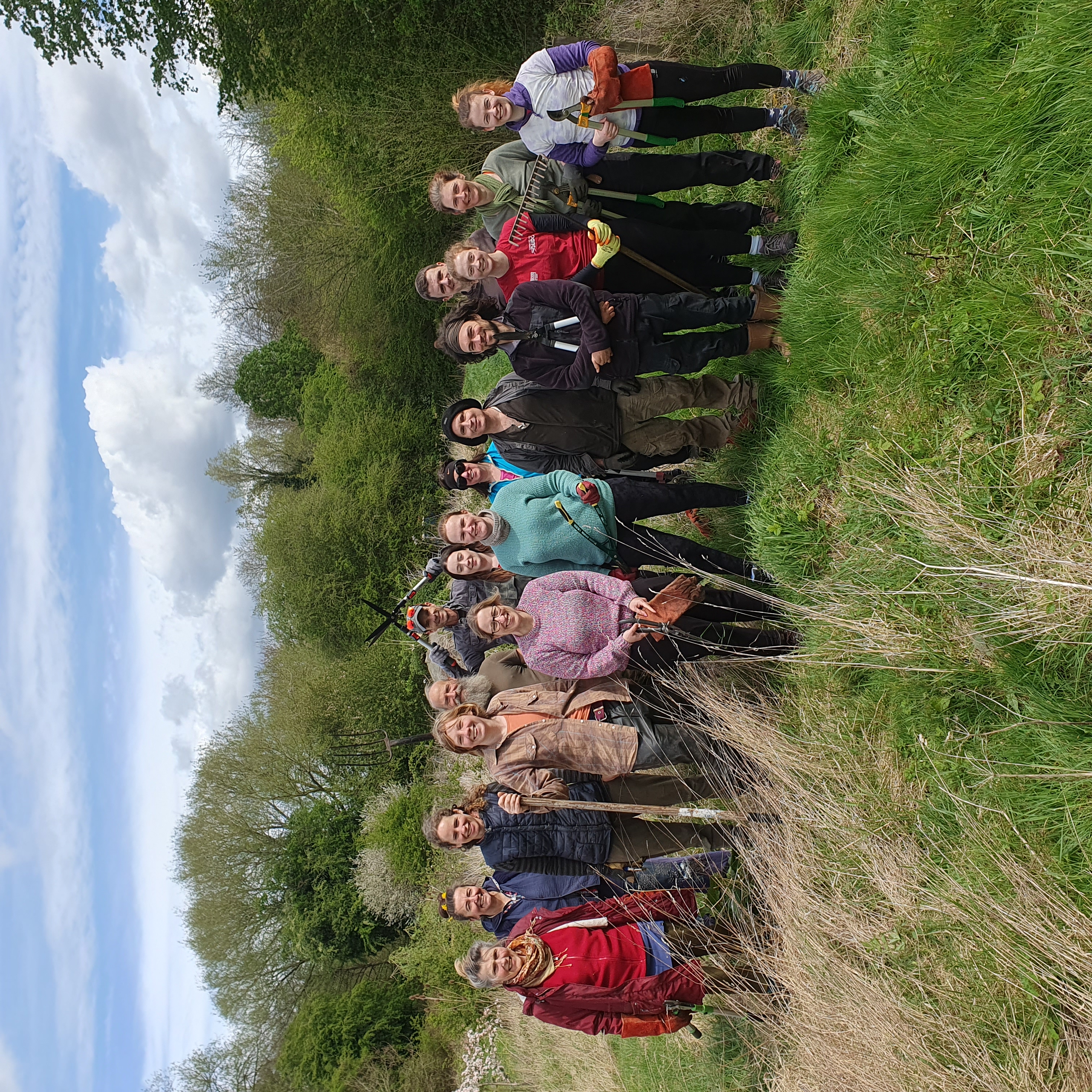
It’s been great to see our newly created ‘infrastructure group’ starting to meet to work on some site developments and we’ve also begun hosting volunteer groups through Warwickshire CAVA where local businesses come for the day to lend a hand and learn what we do here. It’s a great chance to spread the word about our CSA amongst the wider local community and we have more planned in the coming months.
Our newest grower Dan has fitted in well to the team and been a big asset. Dan says: ‘It’s been great getting to meet and work alongside some faces from the membership over the past few weeks. As a new starter to the farm, it’s a joy to receive such a warm welcome, with such a network of knowledge from the local to the global’.
As we look towards May we know there is a lot of work ahead! It’s impossible to say at this point how the delay and the conditions of the past months will affect this season’s crops. There are so many factors at play but we can only hope and pray for good conditions this summer so that most things will have the chance to catch up fine.
Thanks for reading!
The grower team, April 2024
2021: August news – Art on the Farm
The highlight of the week was being visited by artist Robin Wang who spent a day doing reportage illustration around the farm as part of her MA project. Check her out on Instagram to see her amazing work. It’s really special to have creative documentation of what we do on the farm and to know that as we were cultivating the food crops she was cultivating these drawings which she plans to use to spread the word about local sustainable food production.
Update 31st August: to view Robin’s finished ‘zine, click here.
2020 – March news: A Load of Crap
Many people have an idealistic mental image of land work, of ruddy-cheeked farmhands chewing a stalk of hay, cheerfully digging carrots against a bucolic backdrop of butterflies fluttering across wildflower meadows.
This week, however, reality came crashing down as the time finally came to dig out the compost toilet. You may be aware that one half of the toilets has been shut for the last six months to allow its contents to decompose and pathogens to die off; consequently much of what we “harvested” was beautiful black gold, well-rotted compost with a pleasant aroma of nutrition and fertility, a far cry from its stinky beginnings, such is the cycle of order and chaos that we call nature.
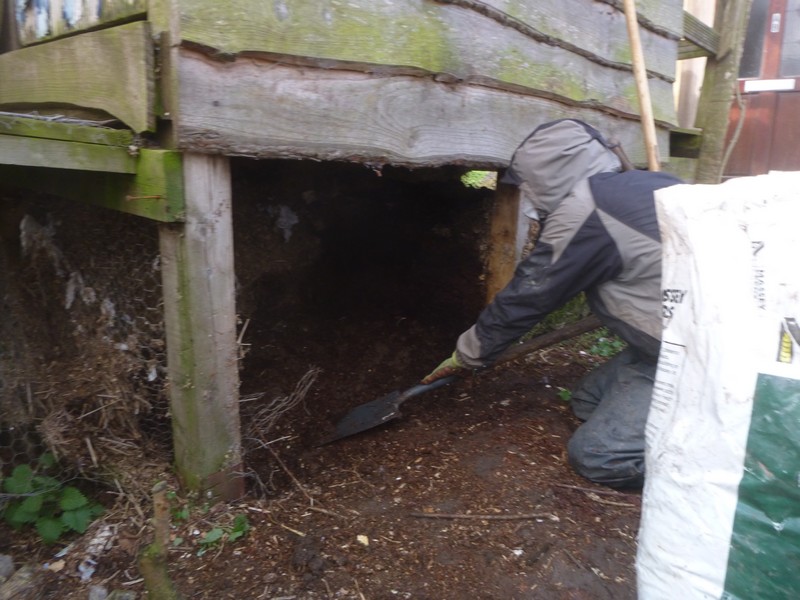
Digging out the toilet chamber 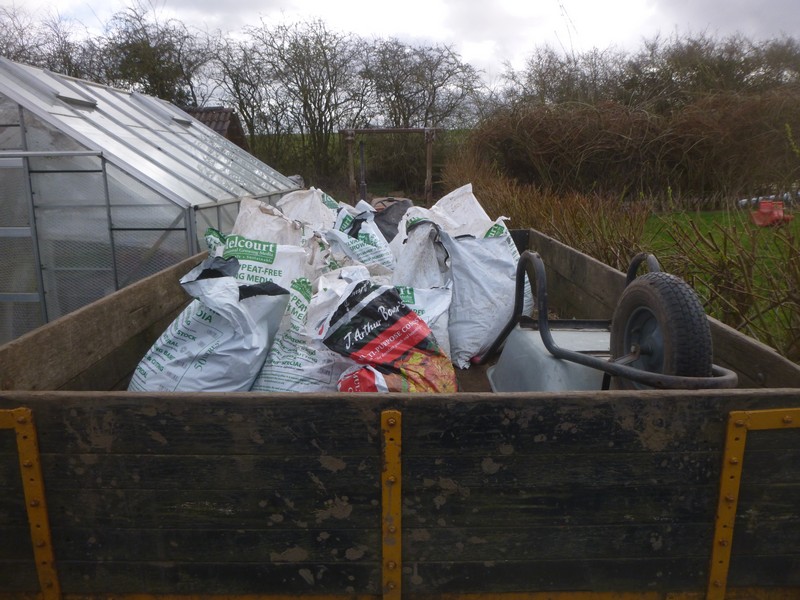
A trailer load of humanure
Organic regulations prohibit the use of this “humanure” in growing, so we got permission to deposit it in an inaccessible corner of a nearby private woodland. Find out more about compost toilets at https://humanurehandbook.com/.
2020 – February news: Wet and wild
For two successive weekends we have had been battered by wet and windy weather, and many members have expressed concern about the consequences for our infrastructure and crops. Fortunately Canalside has emerged unscathed, with the tunnels and other structures all surviving the wind without a hitch (touch wood!), and most of our field-stored crops seem to be coping well with the repeated deluges. You might think farmers are helpless against the onslaught of brutal storms, but there are many farming practices that can really help mitigate the effect of extreme rainfall that we’ve seen over the last five months, most of which are integral to the organic approach and involve protecting and nourishing healthy soil as your most precious resource.
^ Leasowe Farm’s Tallis Wood: trees help hold back water in the landscape
Green manures: winter ground cover protects the soil ^
You may also be interested in this article which describes some of the factors from agricultural practices that contribute to flooding.
2020 – January news: New Veg on the Block
Most years we experiment with a new vegetable; sometimes this works a treat (New Zealand spinach) and sometimes not so well (salsify – although it does have a few fans). For 2020 we have 2 new vegetables coming to the farm: huauzontle (pronounced wah-ZONT-lay), also known as Aztec broccoli, is the spinach family’s answer to broccoli – you eat the unopened flower heads; and amaranth, which we did actually sow in 2016 but never got around to planting out, so as they say, if at first you don’t succeed, fail, fail again… this is leaf amaranth rather than the varieties grown for the quinoa-like seed that you might have seen for sale in wholefood shops.
Photos from https://www.realseeds.co.uk/cookinggreens.html
2019 – December news: The Final Straw
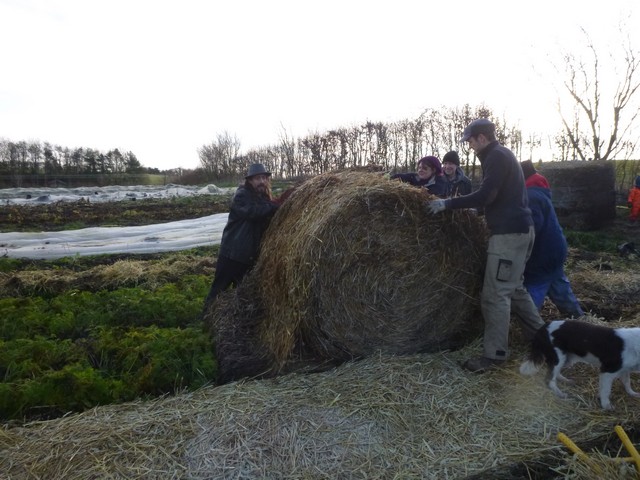
Dom says, “One of my favourite jobs in the yearly calendar is covering up our carrots with straw to protect them from the worst of the winter frosts. Volunteers and growers tackled this job with relish on Wednesday, rolling some big bales down the field with the usual thrilling risk that some of them might gain momentum and end up in the canal (bales, not volunteers). “
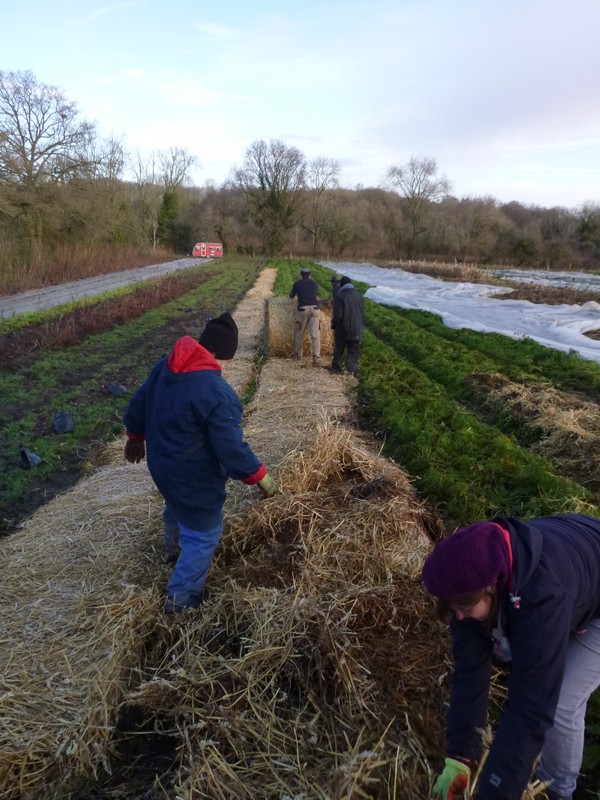
2019 – November news: Bird on a Wire
This is the week when we go through the annual ritual of taking the mesh off our purple sprouting broccoli crop (the fabric damages the emerging sprouts) and fix long lines of fishing wire above the plants, to keep the pesky pigeons off. It sounds strange but the technique works a treat (the birds are simply unable to settle on the crop to feed), at a time of year when they can really massacre your brassicas as other food sources dimish.
2019 – October news: Juice on the Loose in a Fruitful Week
With Saturday’s Apple Day looming, the Wednesday work morning crew trooped to the orchard with one thing in mind: apples. And their expedition was a surprising success – in a year when most orchards have reported very poor harvests, we were pleased to return with over 600kg in tow, with a further load still on the trees to be picked on the Apple Juicing Day.
Saturday’s Apple Juicing Day was a huge success! The air was filled with gasps of awe from children and adults alike as endless waterfalls of juice oozed from piles of pulp; homemade mashers slammed down into buckets of apples, crushing them ready for the press and at the end of the line thirst was quenched with the sweet juice of our labours. Over 300L of juice was made in a very well attended event – much of this was shared amongst attendees but 50+ bottles have been pasteurised for future events and several barrels of cider are bubbling away as I write! Thanks to all who participated in a cracking day and hopefully we’ll do it all again next year.
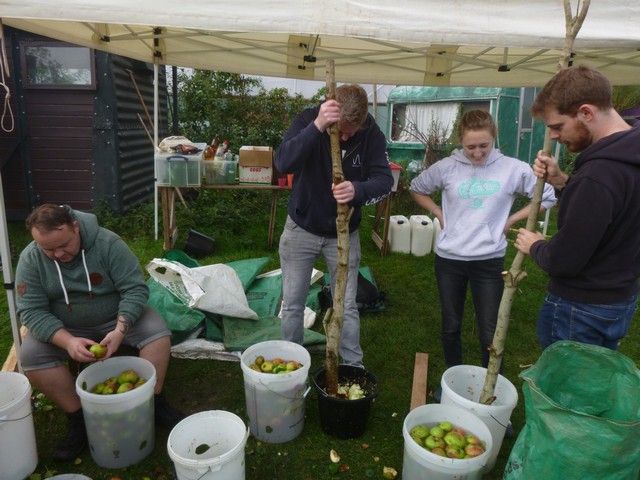
Pressing preps 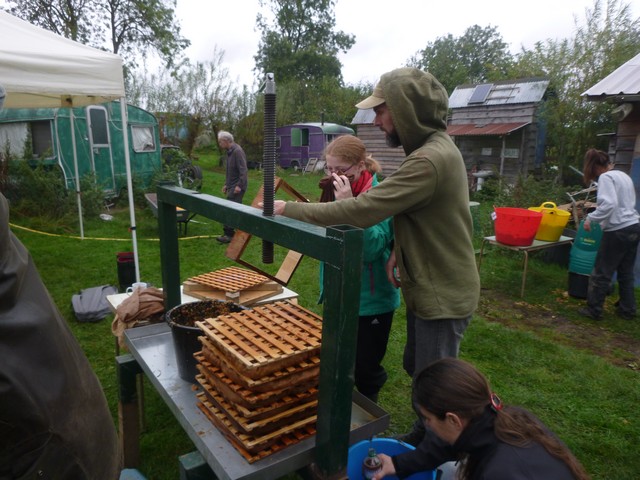
Getting the press going 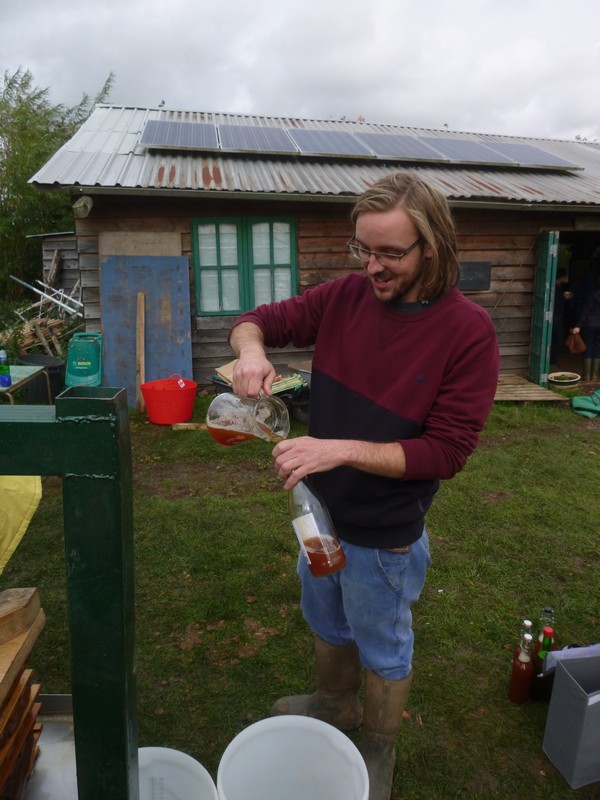
Juice output 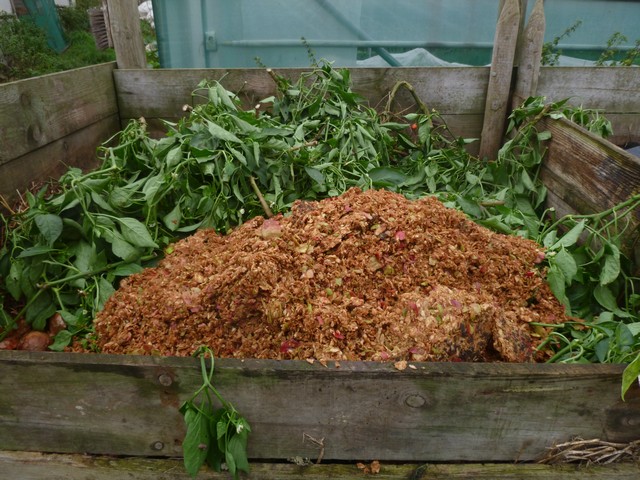
Compost output
